Jun 2012
Jun 2012 sadminCheck the status of your ID to stop it being cloned
Check the status of your ID to stop it being cloned sadmin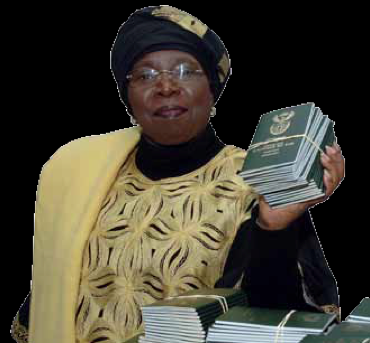
Home Affairs Minister Dr Nkosazana Dlamini Zuma has launched a campaign against the scourge of duplicate IDs which has brought grief and pain to thousands of South Africans.
The first phase of the campaign will see the 29 000 affected South Africans’ names being published in several mainstream newspapers, including The Star and The Pretoria News.
As the campaign progresses, names will be published again in various media platforms throughout the country, including the departmental website and other forms of technology to get the message across.
The second phase will include a list of 83 000 other South Africans similarly affected. “We have taken the steps to publish the names to ensure we can indeed begin to ad- dress the plight of those gravely affected by the scourge of duplicate IDs,” said Minister Dlamini Zuma.
In this regard, the department calls on those whose names appear on the website and in media to approach their nearest Home Affairs offices to help them resolve the matter. All Home Affairs offices will have dedicated counters and personnel to assist members of the public.
All South Africans are encouraged to check the status of their IDs by sending an SMS to 32551, followed by the letter D and your ID number. Home Affairs systems will immediately verify and provide a response on the status of your ID.
For more information visit your nearest Home Affairs office or call the Department of Home Affairs’ toll-free hotline on 0800 60 11 90
Education All systems go with the new curriculum
Education All systems go with the new curriculum sadminAll systems go with the new curriculum
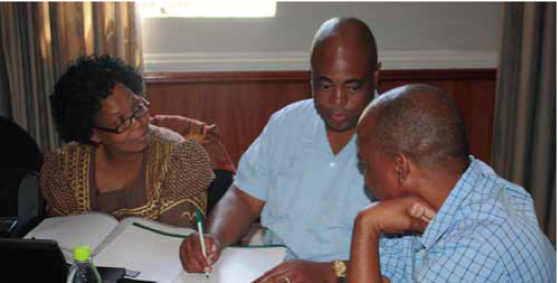
Photo caption: From left: Masego Tlhabane, Bully Monyaki and Hendric Moeletsi during the Department of Basic Education’s orientation of provincial and district subject advisers on the changes that will be introduced to strengthen the implementation of the Curriculum and Assessment Policy Statement in schools.
Heading
The Curriculum and Assessment Policy Statement (CAPS) for the Intermediate Phase and Grade 11 will be introduced in 2013. The Department of Basic Education (DBE) is, therefore, orientating hundreds of subject advisors on the changes to ensure smooth implementation of the new curriculum.
Following the introduction of CAPS in the Foundation Phase and Grade 10 this year, preparations are progressing swiftly to ensure that the introduction of the second phase goes smoothly in 2013. The DBE has gathered subject advisers for the Intermediate Phase from across South Africa in Johannesburg for the orientation programme.
These advisers will then advise teachers on the content, assessment, teaching methodology, resources and management of classrooms in CAPS in their own districts.
Inducting advisers training teachers
More than 1 000 Intermediate Phase subject advisers, from all nine provinces, are orientated in this process, which is scheduled to last for four weeks.
Provinces have been clustered into groups of three to ensure that training runs smoothly and that enough time is spent on practical application of what the changes will mean to teachers in the classroom. The training is held over 5 days per week.
The DBE has developed a manual and re- source pack for each subject adviser for training teachers. “There will be one orientation manual for each subject, which the subject advisers will use for training and pass on to teachers in their districts,” said Ms Jenny Kinnear, director: Schools Curriculum, General Education and Training.
“We are trying to avoid dilution of the message to teachers on the requirements of CAPS and we want to ensure that the same policies and materials are used in all schools. There will be no localisation of these manuals.”
“In this way, principals and school management teams will receive the same information on CAPS to strengthen the management of CAPS. In fact, all stakeholders involved in the training and support of teachers will have the same manual and requirements that will be used to implement CAPS effectively.”
At the same time, DBE Further education and Training subject advisers are orientating their provincial and district subject advisers for all subjects in Grade 11. By the end of their three-week orientation, they would have orientated close to 2 100 officials across all provinces.
All teachers trained before 2013
For the first time, the DBE has experienced high levels of confidence and commitment from provincial and district officials as they prepare to support teachers.
The Department of Basic Education aims to have every Intermediate Phase teacher in the country trained and prepared for the introduction of CAPS before 2013. In the light of this, the DBE will be sending out monitoring teams to ensure that training takes place at a district level and inputs from these visits will be used to further strengthen training for the introduction of CAPS in the Senior Phase, which is scheduled for 2014.
For more information, call the Department of Basic Education: 012 357 3000
Education- Revamped library offers more than just books
Education- Revamped library offers more than just books sadminRevamped library offers more than just books
Terri-liza Fortein - Gauteng Provincial Government
Johannesburg residents can justifiably be proud of their revamped city library which opened its doors recently after a multi-million rand makeover.
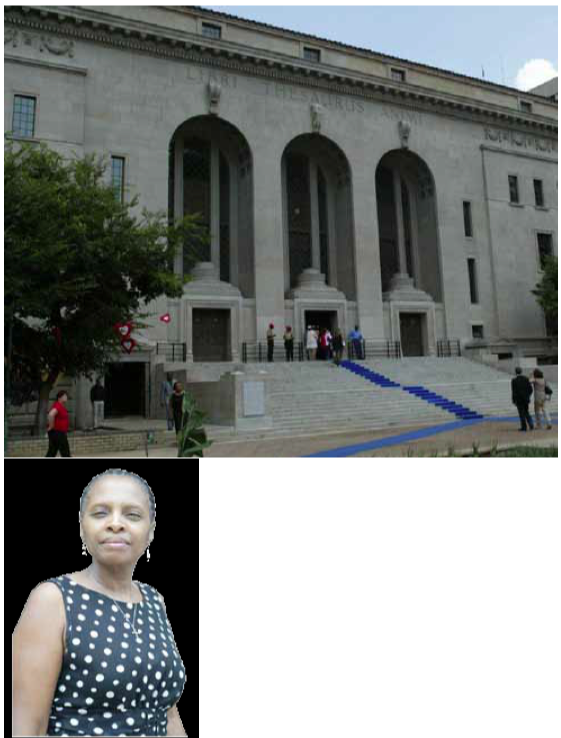
Photo caption: Director for Library and Information Services in the City of Jo’burg, Nobuntu Mpendulo, played a decisive role in the library’s upgrade.

Photo caption: Mbali Dlamini makes use of the library for school assignments and staying in touch with what is happening on the social media front.
The first time Nobuntu Mpendulo had a chance to use a library was at the age of 19 as a first-year student at the then University of Transkei, now Walter Sisulu University.
But her love affair with books had started much earlier; her mother, although not highly educated, instilled in her daughter the love of books. “I remember the first book I discovered was The Prisoner of Zenda, an adventure novel by Anthony Hope,” said Mpendulo.
Accessing books was not easy while growing up in Cala in the Eastern Cape; Mpendulo and her classmates had to satisfy their appetite for reading with prescribed books and Xhosa fiction.
This love of books has led Mpendulo to become the Director for Library and Information Services in the City of Joburg. She was overjoyed when the Johannesburg City Library was officially re-opened.
Mammoth task
The building is a heritage site and the revamp had to be completed within very strict dead- lines. “All the materials used in the renovation and upgrade had to match the existing materials and we had to order a lot of materials from overseas,” Mpendulo explains.
Although the team who took on the project knew the R68 million make-over would be a mammoth one, they were still unprepared by the magnitude of packing up the millions of items. “Books, maps, manuscripts and even furniture all had to be packed and removed from site,” Mpendulo recalls.
Two years and a total of 34 913 working hours later the project is finally complete. The Johannesburg City Library is now fully equipped with 212 public access computers and wi-fi areas; a theatre; music section; more toilet facilities, modernised lifts, and upgraded electrical and air-conditioning systems and a socially-inclusive living room or home-from-home.
The library’s original capacity was 11 198 square metres. This has been increased by an additional 1 967 square metres. The area now houses more than 1,5 million items including books, DVDs, sheet music, CDs and periodicals.
The internationally recognised Harold Strange Library of African Studies can also be accessed at the Johannesburg City Library. This is the jewel in the crown of the library – containing extensive material on all aspects on the history and culture of Southern Africa. This includes unique collections of African languages, litera- ture and ethnology, and exhaustive research on the history of gold mining and Johannesburg.
Social media
Mbali Dlamini (12) from John Mitchell Primary School in Jeppestown is making use of facilities at the new library for school assignments, reading her favourite books and staying in touch with what’s happening on the social media front.
Her reality is very different from the reality Mpendulo faced when she was her age. Dlamini, who also shares Mpendulo’s love of reading and realises the value of knowledge acquired through books, is completely spoilt for choice. Once she has selected her reading material, Dlamini can even take her pick of where she wants to enjoy her books as the library also has a coffee shop, a children’s area and a living room/reading room.
Mr Park Tau, the Mayor of Johannesburg, has called on all the city’s residents, as well as those beyond its borders to take up the opportunities offered by the revamped library to improve their lives. Dlamini is certainly grabbing the opportunity with both hands.
For more information, call Johannesburg City Library on: 011 870 1239
Education- Scholar transport programme underway
Education- Scholar transport programme underway sadminScholar transport programme underway
At present, some 54 500 scholars benefit from the formal Scholar Transport Programme (STP). The programme allows scholars to be transported for free, while the Department of Basic Education pays the cost of the service.
The Department of Education has identified these schools through an application process at its respective schools. The names of the approved scholars were captured onto a database. The department currently is in the process of preparing identity cards for these scholars so that the transport operators will know who were approved for scholar transport.
In addition to the formal Scholar Transport Programme, some 33 000 scholars make use of other services subsidised by the department: 24 000 make use of Algoa Bus Company every day, 7 000 of AB350 and 2 000 of Mayibuye Transport Corporation. The department distributed more than 12 000 bicycles to deserving scholars throughout the province.
If all these are taken into consideration, the department is helping more than 99 000 scholars to get to school. However, both the Department of Transport and the Department of Education are aware that the need for scholar transport is closer to 120 000, but the current budget allocation does not allow for the expansion of the programme. The Department of Transport regularly meets with the Department of Education and the Provincial Treasury to address these issues.
The Scholar Transport Programme includes eliminating fraud and corruption by improving systems and procedures and through closer management of the project, as well as using legitimate public transport operators. Each school completes a weekly proof of delivery form to indicate that the allocated scholars were, in fact, transported. This proof of delivery is then used by the department’s contractor, One Future Development 46, to generate an invoice, which is submitted to the department. The department pays the amount of the invoice to One Future Development 46, who in turn distributes the money to their individual members according to the actual services rendered.
The department is also working closely with One Future Development 46 to improve the distribution of the money to the individual operators.
For more information on how learners in your community can access the Scholar Transport Programme, call the Department of Basic Education on 012 357 3000 or their toll-free hotline on 0800 202 933
Employment news -Students reach for the sky with SKA
Employment news -Students reach for the sky with SKA sadminLouise van Niekerk
The development of young scientists and engineers is among the major benefits of the South African Square Kilometre Array (SKA) Project. South African universities are therefore keen to make the most of the opportunities offered by the project. A total of 23 universities and other research organisations have already benefited from research grants. The project is also reaching out to schools, especially in the Northern Cape.
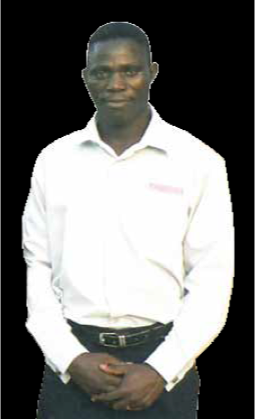
The SKA Project will be a powerful driver of scientific, socio-economic and human capital development throughout the African continent for the benefit of the world, according to Science and Technology Minister Naledi Pandor.
When the SKA project started in 2003 with South Africa’s initial bid to host the telescope, there were only 12 practising radio astronomers in the country. At the end of 2011, there were more than 60 radio astronomers with close to 100 engineers at organisations throughout the country working with this new generation of scientists.
The African bid to host the SKA is led by South Africa in collaboration with eight partner countries namely Botswana, Ghana, Kenya, Madagascar, Mauritius, Mozambique, Namibia and Zambia.
African stars
The project has created a keen interest at universities in all the partner countries to include astronomy in their physics degree programmes. Almost all the universities have introduced undergraduate courses in astronomy and astrophysics and plan to start postgraduate research in the near future.
Active collaboration among the Africa partner states and with universities in South Africa, as well as with Oxford University and the University of Manchester in the UK, the National Radio Astronomy Observatory in the US and the US-based National Society of Black Physicists, will provide the universities with access to course material, lecture exchange programmes and supervisory capacity.
Youth into science
In 2004, the South African SKA Project cre- ated a Youth into Science and Engineering Programme aimed at creating capacity in radio astronomy and engineering disciplines relevant to radio astronomy in Africa.
At the end of 2011, the project had supported 292 post-doctoral fellows and postgraduates and undergraduate students studying to- wards science and engineering degrees and research.
Among them is Bosco Oruru, who grew up as an orphan in a disadvantaged environment in Uganda.
Today, he is completing a PhD degree in astrophysics at the University of the Free State. He believes that studies in astronomy are at the heart of solving society’s greater problems. ”Astronomy embraces all aspects of science, physics, mathematics, chemistry, biology, engineering, and in Africa in particular, research is the way forward to eradicate poverty and ignorance,” Bosco said.
Many students like Oruru, who received bursaries from the South African SKA Project, have now joined the project as full-time employees.
Did You Know?
The South African SKA Project has provided funding to support:
- five research chairs for a period of 15 years’ worth a total of R225 million
- two professorships
- four lecturers and one research assistant
- 22 postdoctoral fellowships and 43 doctoral bursaries
- 74 MSc bursaries and 39 honours bursaries
- 61 undergraduate bursaries
- 35 bursaries for technical studies
- six internships.
For more information, call SKA South Africa: 011 442 2434 or visit the SKA South Africa website: www.ska.ac.za
Employment news
Employment news sadmin
Know your Minister
Rosinah Mpye
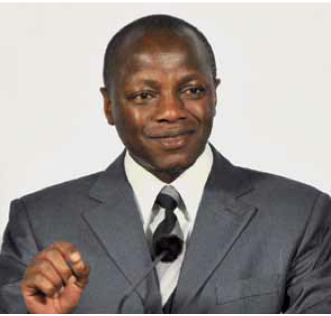
On 11 April 2009, Minister Col- lins Chabane was sworn in as Minister in The Presidency in charge of Performance Management and Monitoring and Administration, becoming the first minister to serve in this position.
Ohm Collins Chabane was born on 15 April 1960 in Xikundu Village, Limpopo. He joined the ANC’s underground activities when he was only 17 years old and went to exile in May 1980.
In 1984, he was arrested and served a term in Robben Island. On his release in 1990, he continued to serve the ANC in Limpopo (then known as the Northern Transvaal) as the Provincial Secretary until 1998.
After the 1994 elections, Chabane was elected to serve as an MP in the National Assembly where he participated in the Constitutional and Management Commit- tees: Constitutional Assembly, the Joint Committee on Defence and Intelligence and the Standing Committee: Finance, Minerals and Energy Affairs.
In 1997, he was re-deployed to Limpopo where he was appointed as MEC in the office of Premier Ngoako Ramatlhodi’s. In 1998, he was appointed MEC for the Department of Public Works and leader of government business in the Legislature. In 2005, Chabane was appointed as MEC for Economic Development, Environment and Tourism. At the ANC’s 52nd National Congress held in Polokwane in December 2007, Chabane was re-elected into the National Executive Committee.
Today, he is responsible for creating greater cohesion and effective systems in government and to alert the appropriate departments when problems arise. The National Youth Development Agency (NYDA) is also his responsibility.
Chabane is a former Chancellor of Mbulaheni Ramaano Training College in the Vhembe District. He holds a Diploma in Leadership and Management from the Turfl Graduate School of Leadership under the University of Limpopo and a Diploma in Management from Esomi in Arusha, Tanzania.
Employment news Sailing the seven seas a dream come true
Employment news Sailing the seven seas a dream come true sadminSamona Murugan
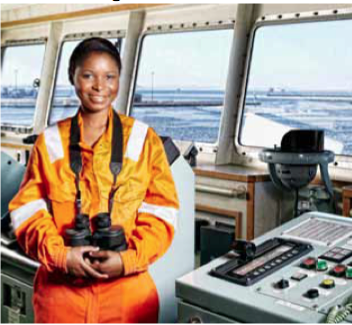
Photo caption: Xolile Mabika.
For 21-year-old Xolile Mabika of Jozini village in KwaZulu-Natal, the thought of ever sailing the seven seas and be- coming the captain of a ship someday was just a dream. But now, thanks government and the South African Maritime Safety Authority (SAMSA), she is on the fast track to making her dream a reality.
Mabika is one of the few recruits chosen as an intern for the SAMSA Cadet Recruitment Programme. She, along with other cadets, will receive port and sea training during the intern- ship.
“Growing up in Jozini, there were no ships and no one ever spoke about ship- ping or even knew about the maritime industry. It was such a foreign concept.”
A few years ago, Makiba’s father started working at a Bid-freight Port Operation and told her stories about big ships passing through harbours and about life working on a ship. “I was so fascinated with these stories that I knew I had to go and see these ships for myself.”
During her school holidays, she went along to the port with her dad and was fascinated by the massive ships. “I instantly fell in love with the ships and knew that this was where my future lay; maritime was my calling; it was where I was meant to be.”
“The first time I went on board, I remember feeling so scared yet so happy; it was indescribable and it was clear to see that passion for the job that the ship crew had,” says Mabika. Another intimidating factor for Mabika was that most of the crew were men, and she was determined to prove the stereotype wrong that maritime is a male- dominated field.
Thereafter, she visited the port every chance she got. She would watch the crew and the surveyors and ask them questions. “Some had been working on the ships for longer that I had been born. The knowledge they had to share was so inspiring.”
After completing matric, Mabika started her career in maritime studies at the Durban University of Technology. The course lasts two years and includes sea-going subjects such as navigation, engineering sciences, naval architecture and sea transport, to name a few.
After completing the first phase of the course, Mabika needed to complete an internship or training programme before completing phase two. She was assisted by SAMSA and was chosen for the cadet recruitment programme. She began her training at the Maritime Rescue Coordination Centre at the SAMSA Sea watch unit with land and port training and is currently away on sea training. “Our training consists of four months on land, then four months at sea and then back again to land. I can’t wait to go out to sea, even though I am a little scared, I have prepared myself mentally, so I am ready.”
During her land and port training Mabika, along with other cadets, learnt how to help docking and passing ships in distress. They were taught how to facilitate and provide support to ships in need.
“The more I learn about this industry the more I love and I can only thank SAMSA, they took me from nothing to something, I am on my way towards my destination and a little closer to achieving my dreams.”
Mabika also emphasised the importance of this programme for the youth in South Africa. “There are many young people out there just like me that came from hardship and were not exposed to these careers, but they must know that there are many opportunities for us through government. We cannot just sit back and expect things to happen, we have to make them happen and take advantage of these great opportunities.”
“Young black people in the country need to lose the mentality that the ships and the sea are not meant for them. Go out and realise that these doors are open for us.”
Her advice to others is to be patience, focus and work hard. Do not focus on the past but reach towards your future.
For more information, call SAMSA: 012 366 2600
Employment news- A year to meet disability employment target
Employment news- A year to meet disability employment target sadminGabi Khumalo
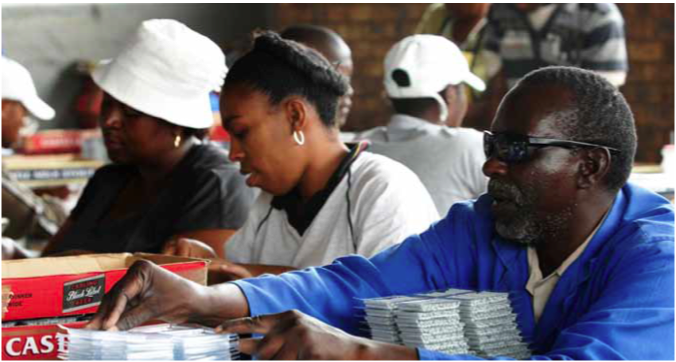
Photo caption: Government is committed to creating job opportunities for persons with disabilities.
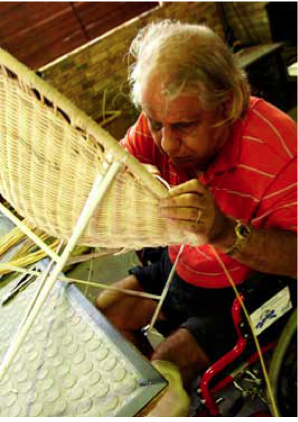
Photo caption: Steady progress is being made in promoting disability rights
Government has given private and public institutions one more year to meet the two per cent employment target of people with disabilities. It currently stands at only 1 per cent, in both government and the private sector.
Minister for Women, Children and People with Disabilities Lulu Xingwana said that while the deadline had been extended to March 2013, the department remained impatient with the failure by both private and public institutions to meet the 2 per cent target.
“As partners committed to equality, equity and social justice, we will therefore monitor equal access to all services and opportunities and ensure that all departments attain the 2 per cent equity target on people with dis- abilities,” Minister Xingwana said.
Minister Xingwana said the department remained committed to deliver on its mandate. Its mandate was to promote, facilitate, coordinate and monitor the realisation of the rights of the vulnerable groups, a mandate which is achieved through advocacy and mainstreaming, monitoring and evaluation and institution- al support and capacity-building programmes.
“We are the first country to sign and ratify the United Nations Convention on the Rights of People with Disabilities, the only country in Africa that has social security grants for people with disabilities, as well as orphaned and fostered children and the elderly,” she said.
Awareness
“Our agenda to promote the rights of people with disabilities is further advanced through the coordination of National Awareness Campaign on the Rights of Persons with Disabilities by strengthening the development of disability awareness campaigns, mainstreaming disability into all the national commemorative days, and consolidating the activities of Disability Months across all three spheres of government,” Xingwana explained.
While acknowledging that there were challenges, Deputy Minister Hendrietta Bogopane-Zulu said there had been a lot of movement in disability rights.
“We are currently finalising the development of a disabled unit and through skills development, more than 7 000 disabled people graduated.”
For more information, call the Department of Women, Children and Persons with Disabilities on: 012 359 0011
Employment news- EPWP puts many on the road to a better life
Employment news- EPWP puts many on the road to a better life sadmin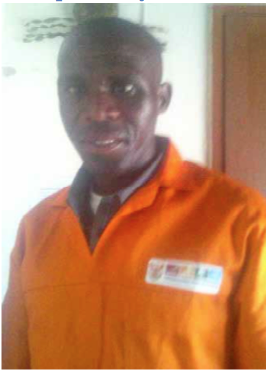
Photo caption: Abel Malebela
Hard work pays
Losing his job at the age of 44 after suffering a stroke, Abel Malebela was faced with the daunting reality of not knowing how he would provide for his family. “I have two daughters, aged 14 and 17, to support, so sitting at home was not an option.”
Malebela realised that feeling sorry for himself wouldn’t put food on the table, and joined an Expanded Public Works Programme (EPWP) project in Barolong Ratlou ba ga Seitshiro in the North West.
The project has taught him that hard work pays, and that it has changed the fortunes of many community members.
New skills
He is now part of an EPWP project, which helps him to provide for his family. The project, which comprises internal road cleaning, the eradication of alien plants, and cleaning public buildings such as clinics and schools around the community, is also helping him to gain new skills.
“The project has helped me a lot. We get paid R660 a month, which I use to pay my electricity bill and give my kids pocket money.”
Malebela’s says his life was a mess when he lost his job; he remembers days when getting something to eat was a challenge.
“I’ve seen worst days, I know what poverty is and I must say my life has changed for the better through the EPWP project.”
“I hope the EPWP can be extended by 24 months and further help us with a monthly stipend to survive. I’m grateful for the opportunity to be able to feed my daughters and I hope my wish of the extension of the project will be fulfilled.”
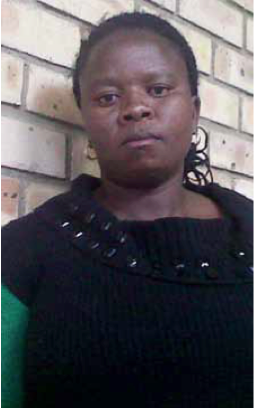
Photo caption: Happiness Notwane
Bank account brings cash, happiness
When 31-year-old Happiness Notwane from North West opened her first-ever bank account, she couldn’t hold back the tears of joy. She says it came with a lot of possibilities and hope. She matriculated in 1998, but has since struggled to find sustainable employment, moving from one piece job to another.
“I have a child, and used to depend on my late mother for support. Since she passed away, the situation at home has been difficult, as my mother died while I was still studying for a certificate in computer studies, so I had to drop out.”
In 2010, she joined an EPWP project to clean pavements and eradicate alien plants. The project also helped with cleaning the roads around the communities.
Saving for education
“I was very happy when we got our bank cards from FNB, with the help of the EPWP. I was also able to take out an insurance policy because of the account.”
The stipend made a huge difference, as she is the breadwinner in her family. “Raising a child alone is not easy; and it was made worse when I didn’t earn any income. The stipend made sure I could take care of my child and I also managed saved money to buy a fridge.”
Notwane now plans to save towards her education. “I believe in the importance of education and I’m always looking at opportunities to acquire knowledge.”
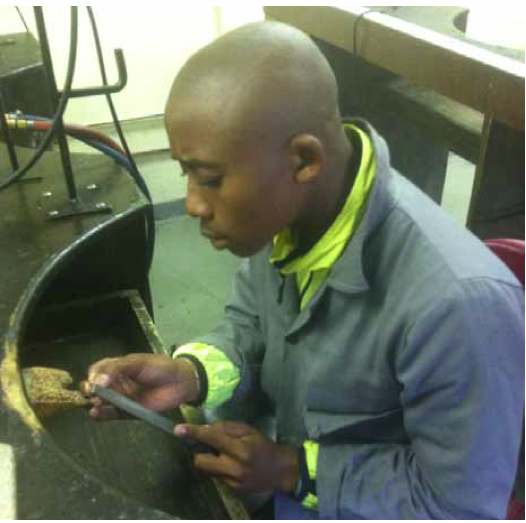
Photo caption: Gugulethu Mpama
On the way up
Gugulethu Mpama is a 22-year-old Orange Farm resident. He knows all too well what it feels like to be unemployed. Though he’s still young, Mpama says sitting at home for a year doing nothing was depressing. He matriculated in 2008, but spent the whole of 2009 at home because he did not have money to further his studies.
Times were tough just sitting at home, which he shares with his unemployed father. He promised himself that he would find a job so that he could support his household. “I was doing nothing at home. We would just pass time with friends and kept on wishing for good things to happen.”
Mpama was fortunate enough to join the Expanded Public Works Programmes’s (EPWP) Intsika Skills Project, where people are taught skills such as jewellery making. “I joined the project in 2010 and haven’t looked back since. I’m determined to make a success of this opportunity that I’ve been given.”
As breadwinner, he says he has realised that drinking away his stipend will not put food on his household’s table. “I use the stipend money to buy food for the house, rather than spending it on useless things.”
He adds that he saved money to buy clothes for himself, using the rest for transport, so that he could continue with the project. His future looks bright, as he intends to pursue a career as a goldsmith after finishing his time at the project. He says the jewellery industry is very profitable if you’re committed to work hard, and is confident that he will succeed.
“I’m grateful for the opportunity provided by EPWP to be involved in this project. The project’s stipend has been helpful, as without it most of us would be stuck at home. I’ve gained a lot of skills and now I can make a success of my life one day.”
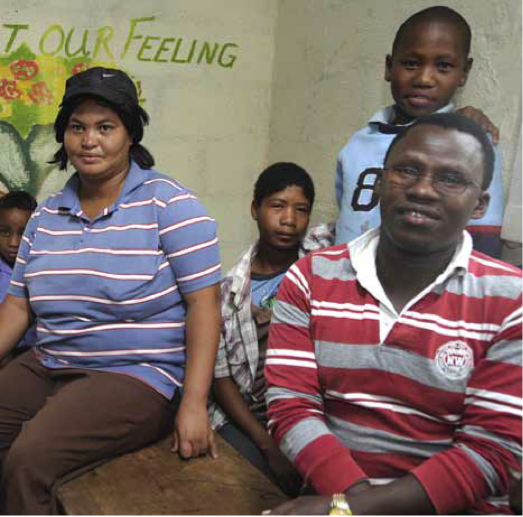
Photo caption: Noah Hugo
You go, Noah
When Noah Hugo lost his job as a security guard in Johannesburg after he suffered a stroke that paralysed the right side of his body, he thought his chances of ever again working were ruined. Hugo has been living with a disability for over four years now.
“There was a time when I thought I’d never find employment because of my condition. I have four children and come from a rural area in the Northern Cape, where the majority of people are unemployed. However, I didn’t want to use my disability as an excuse not to support my family.”
Hope for life
Instead of giving up hope, he joined Hope for Life, an organisation that works with the Expanded Public Works Programme on a recycling project. The 48-year-old is now a supervisor with 20 people under his guidance. “We recycle paper, cardboard boxes, glass and plastic. The project is very busy.”
The project has played a major role in making life easier for Hugo and his family. It also helped Hugo to believe in himself and his ability to be an able provider. “Through the project, I’ve managed to send all my children to school; I’m now a proud provider for my family,” he said.
“My strong point has always been perseverance. Many people living with the same condition would have stayed at home and felt sorry for themselves. But from a young age, I was never someone to give up, even when it seemed difficult to succeed. Today I’m living proof that perseverance pays.”
For more information, call the Department of Public Works on 012 310 5134 or the toll-free number for Artisans and Engineers 0800 782 542
Employment news- Sebenza Nathi gives graduates a new lease of life
Employment news- Sebenza Nathi gives graduates a new lease of life sadmin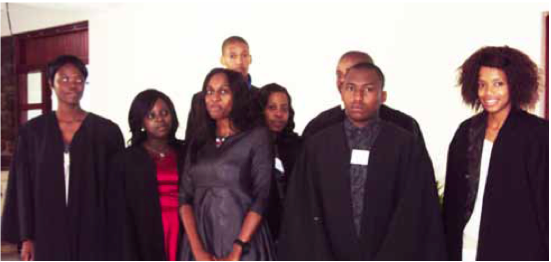
Photo caption: Sebenza Nathi graduates.
Eleven graduates now have a bright future after graduating from the Sebenza Nathi Project. The project, headed by the Gauteng region Department of Water Affairs and the Gauteng based Rand Water Foundation, is aimed at fighting unemployment by developing skills amongst the youth.
Called Sebenza Nathi (isiZulu for Work with Us), the project has helped to close the skills shortage in fi municipalities. In addition, it has helped with the hiring of qualified engineering, water and science graduates who have been placed on long-term internship programmes within these municipalities. The purpose of the project is to alleviate capacity skills constraints in the water services divisions of municipalities, especially in the area of water and wastewater treatment plants. It works by identifying, recruiting, developing and employing young unemployed graduates directly to groom them as new technicians. This will also strengthen the municipalities’ skills base.
The Sebenza Nathi project is managed in partnership with the Gauteng Department of Water Affairs and Environment. The project helps train process controllers from nine municipalities to operate and maintain water and wastewater treatment plants. The Vaal University of Technology provided specialised training to the interns who already have qualifications in different water, science and engineering fields.
The project was piloted in five local mu- nicipalities in Gauteng: Merafong, Lesedi, Midvaal, eMfuleni and Randfontein. The graduates participated for 12 months and the Rand Water Foundation made avail- able R1,8 million in funding. The money covered monthly allowances paid to the interns, handbooks, protective clothing worn during training and study fees to the Vaal University of Technology to train the interns on waste water works management.
Graduation
The graduates were placed at the waste-water treatment plants of participating municipalities. After the initial graduation ceremony, three of the graduates were employed by the Lesedi local municipality. For 24-year-old Lindiwe Nhlapo, an analytical chemistry graduate from the Vaal University of Technology, the project was definitely worth her while.
“It was extremely informative yet challenging and I think the Sebenza Nathi Project is critical to municipalities that don’t have the skills and understanding of what wastewater management entails.”
Lindiwe said the training she received was extremely interesting and she got to see a world within municipality water management that was a foreign concept to her.
According to the Water Affairs Department’s Thami Mnguni, the Sebenza Nathi project forms part of a broader community empowerment programme in the department. The total budget for the Community Empowerment Programme in Gauteng is R400 million, Mnguni said.
Community empowerment includes:
• The War on Leaks Programme, which addresses water losses resulting from leaks. About R100 million has been made available for the project.
• A skills development programme which received R80 million, provides training in water-related fields.
• Adopt a River, a community-based environment initiative targeting women and youth to clean rivers in their communities.
The Department of Water Affairs works with other partners including local municipalities, provincial governments, Rand Water Foundation, Sector Education and Training Authorities (Setas) and non-governmental organisations in carrying out these community programmes.
For more information, call the Department of Water Affairs on: 012 336 8387 or Rand Water Foundation on: 011 682 0911
Employment news- Young co-operative excels in agriculture
Employment news- Young co-operative excels in agriculture sadminIn March 2011, DMT Agricultural Services Co-operative acquired a R2,5 million loan through the National Youth Development Agency’s (NYDA) SME Funding Programme. The young entrepreneurs grow plants such as tea tree and lemongrass for essential oils as well as vegetables such as maize, cabbage, spinach, green pepper, potatoes and butternut.
The co-operative comprises of five members – Zolani Damoyi, Andile Mdunge, Nkanyiso Tsheketshe, Mongezi Mdunge and Chairperson Mfundo Tsheketshe. “We often engage in constructive debates and the co-operative works because we treat each other with respect,” says Mfundo.
The co-operative used the business loan they acquired from the NYDA to buy a tractor, van, seedlings, irrigation, fertiliser, diesel and employees’ salaries. Based in Umzimkulu in rural KwaZulu-Natal, the business employs 16 permanent workers.
“It feels great to know that we are making a difference in alleviating South Africa’s high unemployment levels. There isn’t a day where we don’t get an enquiry about a job, so we definitely need more entrepreneurs in South Africa to create jobs,” Mfundo said.
The young entrepreneurs have ambitious plans for their business. They are currently in the pilot phase of producing bath soap from the essentials oils and ultimately want to open a factory where they can produce various products such as foam bath, bath lotion and soap, Mfundo said.
Asked why they decided to venture into the farming industry, a sector which is not considered popular among young people, Mfundo said it was their love for farming and their determination to find a niche market that led them through this path.
Ploughing back into the community is also an important part of his life. He is a member of a non-profit organisation called Umthombo Wesizwe Development, which highlights issues that affect the environment, addresses moral regeneration and advocates rural development.
Mfundo’s message to aspiring entrepreneurs who are struggling to get their big break is that they should educate themselves and find out about opportunities, such as government support programmes and services, by reading and interacting with people who are in a similar sector.
Employment news- Youth agency helps youth realise their dreams
Employment news- Youth agency helps youth realise their dreams sadmin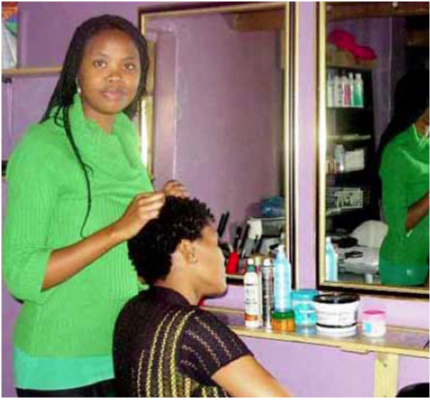
Photo caption: Ponstho Kopung attending to a client.
The beauty of an entrepreneur
Young and driven, Pontsho Kopung (25) is the owner of Setsoto Hair and Beauty Salon. Based in Botshabelo, Bloemfontein, the salon offers a wide range of beauty treatments including manicures and pedicures.
The road to success was not easy for this third-prize winner of the Small Enterprise Development Agency Mangaung’s youth-owned successful business; she tried various things before she discovered her true passion.
After matriculating in 2002 Pontsho’s hopes of studying psychology were dashed because of financial challenges, but she managed to do a civil engineering course. “I was not passionate about engineering and therefore I did not complete the course,” she explains. She moved to a construction company where she worked as a secretary for four months. “I was then accepted as a trainee at the South African National Defence Force, but I was only there for a month because I didn’t enjoy it,” Pontsho says.
Her light-bulb moment came when she heard an Umsobomvu Youth Fund radio advert, which marketed support for aspiring entrepreneurs.
“I realised that I had always loved hairdressing because I used to do people’s hair in high school during my spare time. I decided to ask Umsobomvu for a business loan to buy hair products,” Pontsho says.
In 2005, Pontsho received a R700 loan to buy hair products. Two years later she received a R2 000 loan to buy equipment and tiles for the salon. When the Umsobomvu Youth Fund merged with the National Youth Commission to form the National Youth Development Agency (NYDA) she received another R10 000 loan to refurbish the salon.
“I have been able to achieve all these things because of the NYDA’s support, I always advise people to use their services and programmes,” she says.
In addition to funding, Pontsho got a consultancy services voucher from the NYDA for marketing her business. With this she could get business cards and advertising boards. For just R200, young entrepreneurs can access business development support services such as company registrations, due diligence and tendering support through the NYDA’s Business Consultancy Services Voucher Programme.
“I have many clients, so my goal is to open another salon in Bloemfontein, Pontsho concludes.
For more information, call the NYDA on: Ponstho Kopung attending to a client. 08600 96884
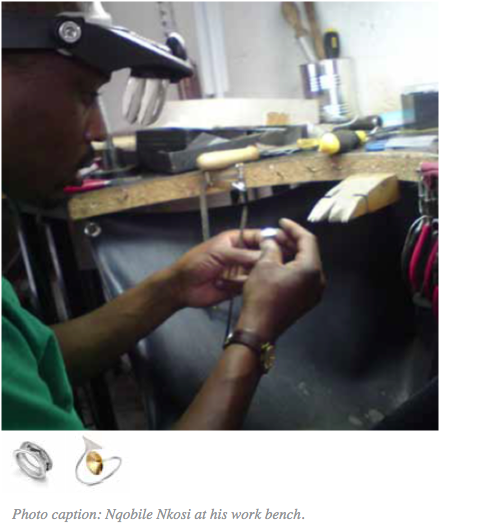
Health- A shot in the arm for Western Cape healthcare
Health- A shot in the arm for Western Cape healthcare sadminBuaNews
Healthcare in Cape Town’s Khayelitsha area has just entered a new era with the recently opened 240-bed Khayelitsha Hospital. This modern facility provides quality healthcare to as many as 1,5 million people.

Heading
Finally, after a lifetime of travelling to distant hospitals, the people of Khayelitsha have access to a hospital in their immediate vicinity that will compare to the best in the world, says Western Cape Health MEC Theuns Botha.
Botha, who was talking at the official opening of the Khayelitsha Hospital, said this marked a milestone in improved service delivery in the Western Cape.
“This hospital is one of many interventions undertaken by the Western Cape government to overcome the legacy of our tragic past so that all people in the province can progressively and tangibly realise the attainment of their rights and human dignity,” said Premier Helen Zille at the opening.
The hospital cost R632 million and can be expanded to accommodate 390 beds from the current 240, should the need arise. It is expected to significantly lighten the load of the city’s overburdened GF Jooste and Tygerberg hospitals.
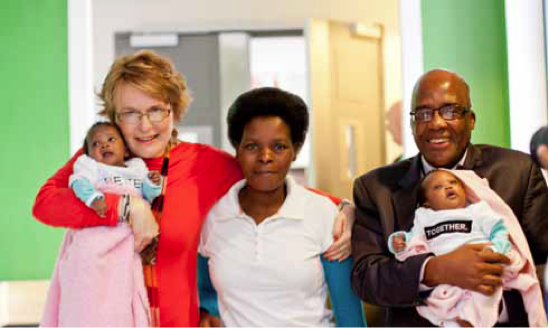
Photo caption: After unveiling the hospital’s plaque, Health Minister Aaron Motsoaledi and Premier Helen Zille welcomed the first set of twins born at the hospital, Asive and Abenathi Futshane, and their mother, Ncumisa Futshane. Born on 6 March 2012, each twin sported a white T-shirt bearing one half of the provincial government’s slogan, “Better Together”.
Services
Khayelitsha is the first hospital in the Western Cape to have an e-filing content management system to help staff and medical practitioners access patient folders electronically. This will significantly reduce waiting times for patients.
The hospital also offers:
• In-patient services such as surgical, medical, paediatric, obstetrics and overnight beds
• a medical day ward, predominantly for antiretroviral (ARV) referrals
• a large accident and emergency unit, which is 30 per cent larger than that of a standard district hospital trauma unit, due to the high incidence of trauma and homicide in the area
• a large maternity ward, 30 per cent larger than that of a standard district hospital trauma unit, due to the high population growth and birth rate in the area.
• an EMS/ambulance station with heli-port that will serve as the divisional headquarters of the Khayelitsha sub-district and Helderberg basin, with a fleet of 11 ambulances and 110 staff members to operate the ambulance services for the area.
• a nursery and kangaroo mother care facility at the obstetrics unit.
The Michael Mapongwana Community Health Centre (CHC), Site B CHC, Nolungile CHC and smaller clinics in the Khayelitsha area will continue to render a health service to the community and surrounds, but will refer patients to Khayelitsha Hospital when required. Patients who require more specialized or advanced levels of care will be referred to the Tygerberg Hospital.
Conservation and comfort
The new Khayelitsha Hospital is a “green” building and has received a Level 3 accreditation in terms of carbon footprint.
Emphasis was placed on energy conservation and low maintenance materials, which will contribute towards reducing its running costs.
The design also places emphasis on the comfort and experience of patients. The key structuring element is a network of courtyard spaces, each within its own character and identity, and drawing extensively from the inputs of local artists.
For more information, call the Western Cape Department of Health on: 021 483 3235
Health- NHI takes off in KZN
Health- NHI takes off in KZN sadminNHI takes off in KZN
It’s all systems go to ensure that the R33 million pilot phase of the National Health Insurance (NHI) runs smoothly in KwaZulu-Natal. To this end, a team of managers have been identified to champion the NHI in the province.
“They will be tasked with ensuring that the public is brought on board. There is clear communication on how the NHI will work so that people are able to participate having the correct and necessary information,” said Dr Sibongile Zungu, head of the provincial Department of Health.
Manage and monitor
The department has established an NHI project management office that will report to the MEC and the head of the department every two weeks.
The pilot phase will focus on improving healthcare and the performance of various health institutions. The phase involves improving primary healthcare, including the appointment of district specialist teams and creating family health and school health teams.
The projects office will manage the pilot phase and the NHI grant. It will also coordinate the functioning of the department, including setting up a public relations office and a research desk.
Private Sector
The MEC for Health in KwaZulu-Natal Dr Sibongiseni Dhlomo said that during this phase the department would work with and learn from the private sector, especially in areas such patient information systems, the establishment of the KZN Information Nerve Centre and a billing system. “Contrary to common belief, we will be engaging the private sector vigorously as we implement the NHI. We would, for example explore innovative models for service provider billing and payment of general practitioners and pharmaceutical companies,” he added.
Dhlomo said the impact of the NHI was dependent on individuals and communities taking responsibility for their own health. As part of its efforts to motivate and inspire people to follow healthy life- styles, the department has started a healthy lifestyle programme that will be rolled out throughout the province.
For more information, call the KZN Department of Health: 0800 00 5133
NYDA takes development of youth to another level
NYDA takes development of youth to another level sadminNYDA takes development of youth to another level
Chris Bathembu
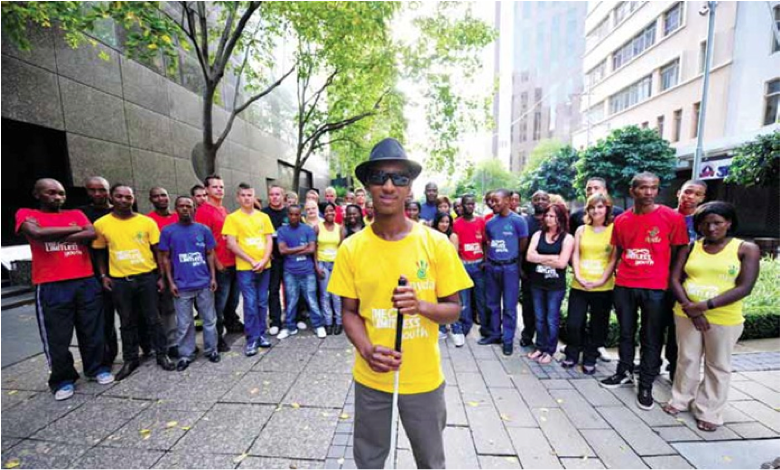
Photo caption: The National Youth Development Agency encourages youth to reach their dreams through the Limitless Campaign.
On 16 June, South Africa marks the 36th anniversary of the Soweto uprising of 1976, when students took to the streets to protest against a law obliging them to study in Afrikaans. The protest, which quickly spread to other townships across the country and resulted in hundreds of deaths, signalled a milestone in the fight against apartheid.
June, which is National Youth Month, not only commemorates 16 June, but honours all young people who lost their lives in the struggle against apartheid. The commemoration reminds today’s youth of the sacrifices made by their predecessors and draws attention to how far we have come since that fateful day in 1976.
This year, the third anniversary of the National Youth Development Agency (NYDA) - a body tasked with creating opportunities for and advancing the interests of youth in the 21st century - coincides with Youth Month.
Successes and challenges
The NYDA was formed in a merger between the National Youth Commission and the Umsobomvu Youth Fund, and was mandated to promote co-ordination in youth development and to ensure that young South Africans are active players in and beneficiaries of the national economy.
The agency is also responsible for policy, research and development, providing youth advisory and information services, and access to funding.
According to NYDA chairperson Andile Lungisa, a former student activist and former ANC Youth League Deputy President, South Africa must give youth development the attention it deserves. “Let’s change the situation whilst we still have time,” Lungisa said.
He acknowledged that while much progress had been made since June 2009, more still needed to be done to rescue the country’s young people from unemployment and poverty.
For him it has been a remarkable journey with successes and challenges. Since its formation the NYDA has helped create more than 62 000 jobs and provided skills training to 24 000 young people across the country.
Policy guidelines
The NYDA’s National Youth Policy Implementation Guidelines encourage the speedy implementation of the National Youth Policy (NYP) 2009 – 2014 that was approved by Cabinet in 2009. The policy was developed to address the needs of the youth in South Africa and give young people access to opportunities.
One of the motivations behind the NYDA’s interventions is the fact that some Grade 12 learners are unable to read and write properly while some graduates aren’t even able to put together a job application letter.
The NYDA had decided to release the guide- lines after monitoring what Lungisa described as a “disappointing pace” of implementation. “So these guidelines will hopefully help, because the document gives both the public and private sector ideas on how to put youth development at the centre of planning and implementation of activities that inform their business continuously” said Lungisa.
Significant progress
Lungisa said the policy document made it clear how officials should play a role in mainstreaming youth development in all three spheres of government. It has been presented to Minister in the Presidency Collins Chabane, with the NYDA also scheduled to meet President Jacob Zuma over the implementation of the youth policy.
“Section 6 and 7 of the NYDA Act gives the agency powers to coordinate and ensure that organs of State take into consideration the national youth development priorities in the activities of their business,” Lungisa said.
He said the NYDA was confident that through systematic efforts, organs of State, private companies and civil society would be able to contribute meaningfully towards significant progress in matters of youth development.”
This will take place through the implementation of programmes and projects that are geared towards achieving the objectives of youth development in the country as described under the NYP 2009–2014 main policy imperatives. These are Education; Economic Participation; Health and Wellbeing; Social Cohesion and Civil Participation; National Youth Service and Youth Work.
Despite the Act being clear about the role of organs of State and the responsibilities of the Youth Agency and The Presidency in so far as reporting on youth development interventions by organs of State, the act needs regulations in order for its enforceability.
During the coming months, the NYDA will lobby for the amendment of the Act. Once the Act is amended and certain sections of it are enforceable through regulations that would have been developed and endorsed by Parliament, it would be possible to encourage organs of State, the private sector and civic society to do more towards a common agreed goal and raise youth development to a higher level.
In the meantime the NYDA has tabled an Integrated Youth Development Strategy and Plan (IYDS) before the Minister. The aim of the IYDS is to promote and guide a uniform integrated approach for youth development which is directly informed by the NYP 2009–2014.
The Minister is expected to take the IYDS through a Cabinet process of approval. Once it is approved, departments and/or organs of State will have to plan annually in accordance with the recommendations contained in the IYDS to advance youth development.
National Orders 2012: A Vuk’uzenzele Special
National Orders 2012: A Vuk’uzenzele Special sadminSouth Africa is proud of you
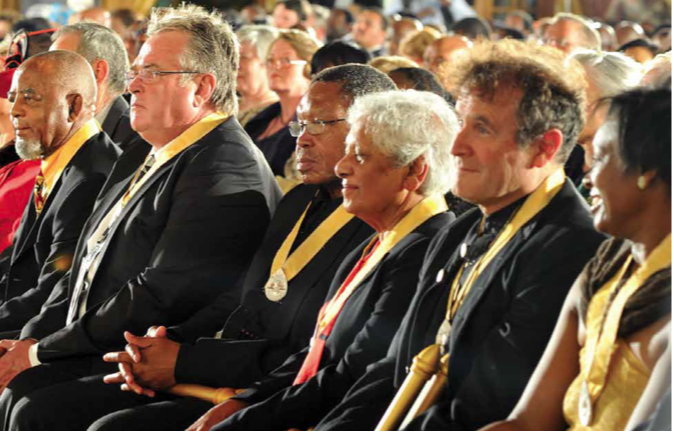
Photo caption: Recipients of National Orders listen attentively to President Jacob Zuma’s address during the Awards Ceremony.
When a bus carrying 44 children overturned and fell into a river, Neil John Sharrocks did not think twice. He put aside his own fears and put his own life at risk to save the lives of those children.
On 27 April 2012, Sharrocks was recognised for the selfless act he performed and received the Order of Mendi for Bravery from President Jacob Zuma. He is one of the diverse range of people honoured by President Zuma through the conferring of National Orders.
National Orders are awarded to deserving citizens and eminent foreign nationals who have contributed meaningfully towards making the country a free, democratic and successful nation, united in its diversity.
The awards comprise the Order of Mendi for Bravery, the Order of Ikhamanga, the Order of the Baobab, the Order of Luthuli, the Order of Mapungubwe and the Order of the Companions of OR Tambo.
Speaking at the National Orders Awards Ceremony, President Jacob Zuma said: “We are bestowing honours upon all deserving people and patriotic South Africans, as well as our international friends and compatriots as an important reminder of the history of this country, and its relationship with the international community which waged relentless struggles against apartheid.
“We are honouring all who made a very important contribution to this country and continue to make us proud to be South Africans by making history in their diverse avenues.”
In 2010, government made the decision to hold the National Orders Awards Ceremony on Freedom Day in order to align and link them with the country’s Freedom Day celebrations, and properly honour all those who have made sacrifices and a meaningful contribution to the country’s freedom, at national as well as on the international level.
“We honour all those who were in the forefront of our struggles, who through their political activism, working class leadership guided and inspired our people to be where they are today. We honour and pay tribute to all those gallant fighters who were part of that historic foundation and all those who successfully led the people’s struggles to its ultimate destination,” said President Zuma.
“These acts have contributed in creating a better life for all, and contributed to nation building, common nationhood and helped us in consolidating our 18-year-old democratic dispensation. This year is no exception,” he explained, adding that the country was celebrating people, who, in the definitive show of selflessness and love, risked and lost their lives to save others.
Like Sharrocks, the men and women honoured contributed differently.
Juluka founder, international entertainer and cultural activist “Johnny” Clegg, who received the Order of Ikhamanga was awarded for his excellent contribution to, and achievement in the field of bridging African traditional music with other music forms.
Zane Maureen Wilson who received the Order of the Baobab was awarded for her outstanding contribution as an entrepreneur, mental healthcare practitioner and a leader in the struggle to create awareness of diseases such as depression and anxiety.
Professor Apollon Davidson, who received the Order of the Companions of OR Tambo, was awarded for his exceptional contribution to the struggle for the eradication of apartheid and to the development of a post-apartheid, free and democratic South Africa.
“Today we also honour and award those individuals who have excelled in fields that are less known and less celebrated including aviation, piloting, entrepreneurship, as well as academic fields like research in science and engineering,” said President Zuma.
National Orders 2012: A Vuk’uzenzele Special
National Orders 2012: A Vuk’uzenzele Special sadminCelebrating freedom, celebrating honour
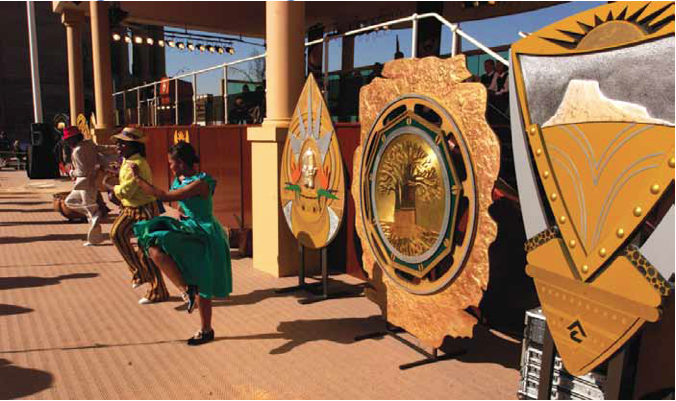
Every year, on Freedom Day, South Africa pays homage to its heroes and heroines and eminent foreign nationals who have played their part in making South Africa what it is today.
With the birth of a new non-racial and non-sexist democracy in South Africa 18 years ago, there was a critical need to review the system of national orders and awards. The previous system consisted of one Decoration and four Orders, which did not embrace the spirit of the rebirth of South Africa.
In May 1998, the then newly-instituted President’s Advisory Council on National Orders was given the task to review the system of National Orders and awards.
A technical committee embarked on an extensive and inclusive research process that involved public consultations, interviews with stakeholders on a national scale, group discussions focusing on alternative systems, the commissioning of historical research and the gathering of jewellery and medal designers to design the new medals.
The then Department of Arts, Culture, Science and Technology, in cooperation with the Government Communication and Information System, investigated further symbols and symbolism that would capture the essence a new democracy.
A panel of academics and specialists in indigenous symbols was asked to identify key factors and elements that represented the collective and inclusive history and experience of Africa with South Africa as the main point of reference.
This resulted in the commissioning and ultimate design of the new National Orders.
Today, South Africa is a country that embraces freedom and no longer excludes or discriminates on the basis of sex, colour and creed. As the country moves forward, it is distinguished by a new culture of human rights and respect for the dignity of the human spirit.
In so doing, new symbols that reflect our nation and its rebirth have evolved. The National Orders were conceived in that same spirit of rebirth and are the highest symbols of pride and honour in our country.
How the nomination process works
The National Orders are the highest awards bestowed on ordinary South Africans or eminent foreigners who are doing or have done extraordinary things for our country. The awards tell a story of distinguished men and women who have enriched our lives through what they do or have done.
“We bestow national honours on men and women whose towering credentials rival our highest mountains. Yet, they stand before us with a wondrous modesty which defies their huge distinctions in various fields, which have enriched our lives immeasurably,” says Dr Cassius Lubisi, Director-General in The Presidency.
The nominations for National Orders can be made by members of the public, non-governmental organisations, civic-based organisations and faith-based o ganisations. Nominations must include a motivation with the following information:
• a summary of the nominee’s achievements
• a list of exceptional milestones reached by the nominee in his/her career and/or international arena
• a description of the exceptional, out- standing, dedicated service or act of bravery rendered by the nominee.
The nominations will be considered by the National Orders Advisory Council, which recommends qualifying candidates to the President.
The closing date for nominations for the next series of awards is 30 July 2012.
The nomination form can be downloaded from www.thepresidency.gov.za
Nominations should be sent to: The Chancery of Orders, Private Bag X1000, Pretoria, 0001 or delivered to the following address: Chancery of Orders, The Presidency, Room 20, West Wing, Union Buildings, Pretoria, 0001. For more information, visit www.gov.za
National Orders 2012: A Vuk’uzenzele Special
National Orders 2012: A Vuk’uzenzele Special sadminSouth Africa’s National Orders
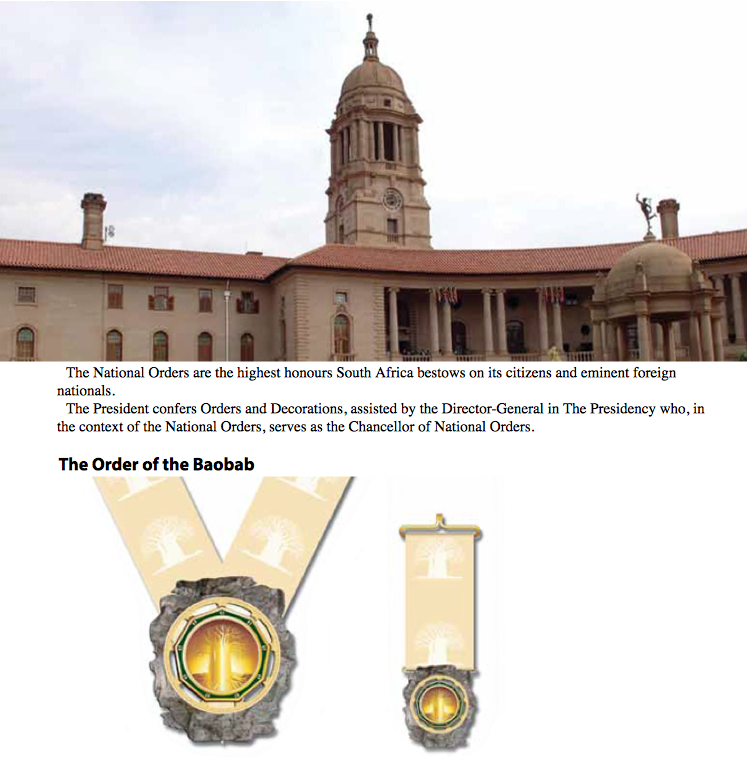
The Baobab, a tropical African tree, depicts endurance, wisdom, endowment and bounty. These are characteristics that the recipients of this Order should possess.
Various elements in the Order’s design symbolise longevity, community support, contribution, and prosperity.
The central motif of the Order is the image of the Boabab tree enclosed in a nine-sided polygon, which represents the nine provinces of our country as well as the many possible areas of possible contribution and service to the nation.
The Order of the Baobab is awarded to South African citizens for distinguished service in the fields of business and the economy; science, medicine and technological innovation; and community service.
The design has three elements: a neck badge (a gold, silver or bronze medallion on a neck band); a miniature (a miniature gold, silver or bronze medallion for wearing as a brooch or on the breast pocket); and a lapel rosette.
The Order is awarded in three classes: gold, silver or bronze.
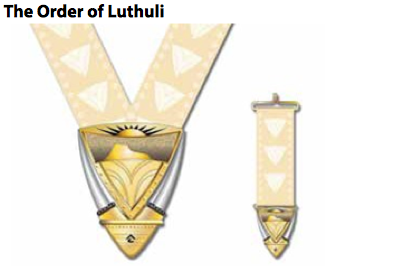
The Order is named after Chief Albert Luthuli whose leadership during the Defiance Campaign against the apartheid system won him the Nobel Peace Prize in 1960.
The central motif of the design of the Order is the triangular flintstone, which represents a basic survival tool used by our ancestors to skin animals, construct shelter and cut strips of skin to make clothes. It symbolises Chief Luthuli’s vision for all people to be empowered to participate fully in society. Below the flintstone is Isandlwana Hill – an abstract representation of our country’s national flag representing freedom and democracy. Two bull horns are on either side of the design, which signifies the empowerment and prosperity of African people. The leopard skin rings at the base of the horns represent the trademark headgear of Chief Luthuli.
The Order is awarded to South Africans who have made a meaningful contribution to the struggle for democracy, human rights, nation-building, justice and peace, and conflict resolution.
The Order of Luthuli is awarded in gold, silver or bronze.
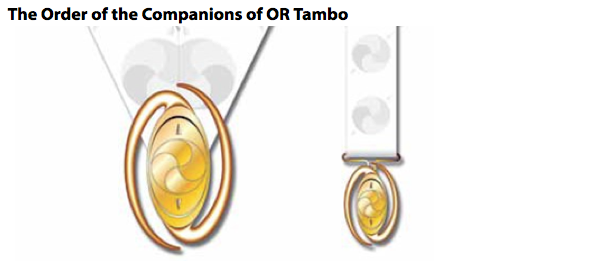
Struggle icon Oliver Tambo played a major role in the growth and development of the international movement of solidarity against racism and apartheid. Among other things, he established the first missions of the liberation movement in Egypt, Morocco, Ghana and London. This was a modest start to bring the friends of South Africa together throughout the world in a continuous and sustained mobilisation of the international community in support of a free and democratic South Africa.
The Order is awarded to heads of state and other dignitaries for promoting peace, cooperation and friendship towards South Africa.
In the design of the main badge of this Order, the watchful eye of the majola (mole snake) symbolises the active expression of solidarity and support for South Africa.
The Order of the Companions of OR Tambo is awarded in three classes: gold, silver and bronze. All these awards include four elements: a walking stick, a neck badge, a miniature and a lapel rosette.
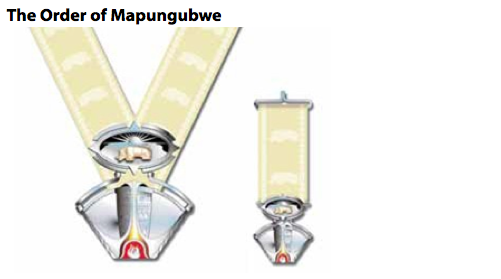
The Mapungubwe kingdom existed in the northern corner of our country a millennium ago. The Kingdom had a sophisticated state system and a developed agriculture sector. It also developed a mining and metallurgy industry. The kingdom traded with countries as far as China. During its time, it represented excellence of human thought and ingenuity.
The bottom segment of the design represents the skill and craft of smelting, smithing, pottery and ceramics. There is also a fire representing the furnace used to purify and temper metal and fire pottery. The furnace also evokes the life-sustaining properties of fire, used by humankind since the Iron Age to provide warmth and sustenance. The fire represents also the advancement of humankind. The overflowing urn at the centre symbolises abundance of wealth and excellence.
The majesty of the shape of the Mapungubwe sceptre and the delicately crafted Mapungubwe rhino reflect remarkable workmanship. Its overall message is that South Africa and its people can prosper, regardless of the conditions in which they find themselves.
The Order of Mapungubwe is awarded to South African citizens for excellence and exceptional achievement. It is awarded in gold, silver or bronze.
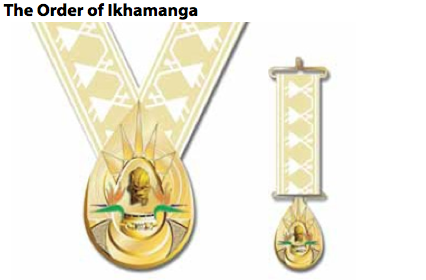
The ikhamanga, more commonly known as the strelitzia, crane or bird of paradise flower, is the central motif of the Order of Ikhamanga and symbolises the unique beauty of the achievements of South Africans in the creative fields of arts, culture, literature, music, journalism and sport.
The different design elements on the award e.g. one of the Lydenburg heads, concentric circles and two roads disappearing into the horizon, all highlight the creative and sports fields and represent exceptional achievement and success.
This Order is awarded in gold, silver or bronze.
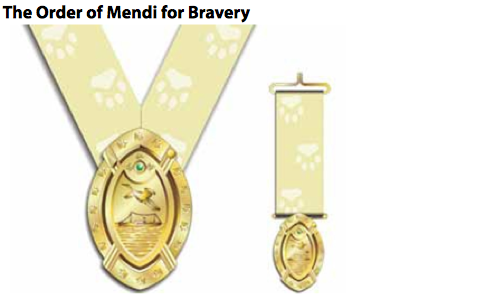
The Order has various design elements depicting bravery, courage and resilience.
On the shield is the ill-fated warship, the SS Mendi, which sank on 21 February 1917 with all its officers. On board were also 600 black South African volunteer soldiers on their way to France to assist in the Allied War effort during the First World War. Legend has it that these soldiers, together with their fellow white officers, sang as the vessel sank. Above the ship, flies a blue crane, which represents the souls of the drowned brave soldiers.
The green emerald, which lies in the centre, is the core from which three pointers emerge that represent the way ahead in rendering assistance to those in need during natural disasters and other extreme difficulties that take place around the globe.
In the background are a knobkierie and spear, which complement the shield as symbols of defence and honour. The edges of the holding shape are trimmed with the spoor of a lion, indicating border patrols, within and beyond our country, by dedicated and brave South Africans.
This Order is awarded to South African citizens who have performed extraordinary acts of bravery
The Order of the Mendi for Bravery is awarded in gold, silver or bronze.
National Orders 2012: A Vuk’uzenzele Special
National Orders 2012: A Vuk’uzenzele Special sadminOur heroes and icons
Recipients of National Orders in 2012
The names and faces that are seen on these pages represent what is possible through sacrifice, bravery, courage and dedication. These are extraordinary men and women from both inside and outside our country, some who are no longer with us. Some are born and bred of this soil, others of distant lands. Yet, all are deeply rooted to our beloved country, South Africa.
Those who received National Orders this year are:
Order of Mendi for Bravery Silver

Neil John Sharrocks
Awarded for displaying an act of bravery by putting his own life at risk to save the lives of 44 children who were at the risk of drowning when the bus they were travelling overturned and fell into a river.
Order of Mendi for Bravery Gold

Michael Janse van Rensburg (Posthumous)
(Posthumous) Awarded for his bravery, courage and fearlessness by putting his life in danger to save the life of a fellow human being
Order of Ikhamanga Silver

Gladys Faith Agulhas
Awarded for her contribution to and role in the field of arts and theatre work in South Africa and for putting South Africa on the world map in her field.
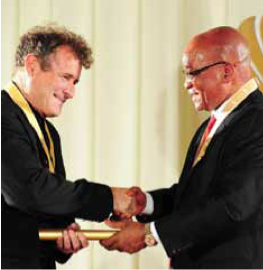
Jonathan “Johnny” Clegg
Awarded for his excellent contribution to and achievement in the field of bridging African traditional music with other music forms.
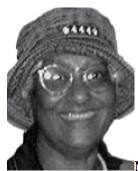
Muthal Naidoo
Awarded for her contribution to and role in the field of arts, culture and literature in South Africa.
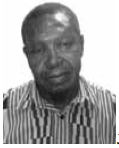
Joseph Nong “Joe” Thloloe
Awarded for his exceptional contribution to and achievement in the field of the media, literary writing and journalism and for his contribution to the liberation struggle.

Daniel “Cheeky” Watson
Awarded for his exceptional contribution to the field of sport, in particular rugby.
Order of Ikhamanga Gold
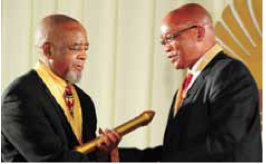
Julian Sebothane Bahula
Awarded for his exceptional contribution to and achievement in the field of music and the arts and the struggle for a free and democratic South Africa.
Order of the Baobab Bronze

Selwyn “Scully” Levin
Awarded for his immense contribution to and achievement in aviation, both as a pilot and trainer, in South Africa and internationally.
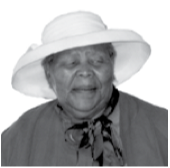
Awarded for her outstanding Contribution to community development, women’s empowerment and upliftment of the lives of people in rural areas.

Zane Maureen Wilson
Awarded for her outstanding contribution as an entrepreneur, mental healthcare practitioner and a leader in the struggle to create awareness of diseases such as depression and anxiety and her contribution to the formation of the South African Depression and Anxiety Group.
Order of the Baobab Silver

Professor Daniel Gerhardus Krige
Awarded for his contribution to and achievement in the field of engineering, as well as his contribution to the fields of science and geostatistics.
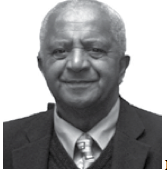
Reverend Fenner Christian Kadalie (Posthumous)
Awarded for his exceptional contribution to society, and his dedicated service to the community of District Six and the Cape Flats through his ministry, which took care of the poor and the marginalised.
Order of the Baobab Gold

Professor Christopher John Robert Dugard
Awarded for his immense contribution to and achievement in the field of law, especially in human rights and international law.

Frank Kennan Dutton
Awarded for, among other things, his exceptional contribution to and achievement in his investigative work as a dedicated and loyal police officer, and for his role in working for peace in KwaZulu-Natal.
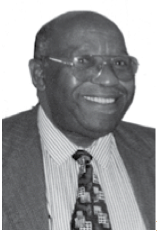
Lwandle Wilson Magadla (Posthumous)
Awarded for his exceptional contribution to and achievement in his work as a dedicated and loyal police officer, for his role in uncovering the truth for the Truth and Reconciliation Commission and his role in working for peace in KwaZulu-Natal.
Order of Luthuli Silver
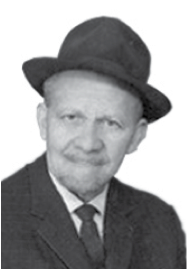
John Stephen Gomas (Posthumous)
Awarded for his exceptional and outstanding contribution to the struggle for workers’ rights and his selfless contribution to the struggle for a free, nonracial, non-sexist and democratic South Africa.
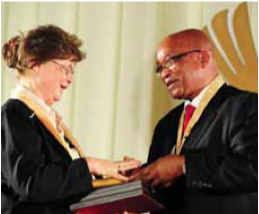
Elizabeth Sophia Honman (Bettie du Toit) (Posthumous)
Awarded for her excellent contribution to the struggle for workers’ rights and the realization of a non-racial, non-sexist, free and democratic South Africa.

Peter Ramoshoane Mokaba (Posthumous)
Awarded for his contribution to the struggle against apartheid, and his contribution towards the creation of a non-racial, non-sexist, free and democratic South Africa.
Order of Luthuli Gold
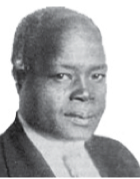
Josiah Tshangana Gumede (Posthumous)
Awarded for his exceptional contribution to the struggle for democracy and freedom.
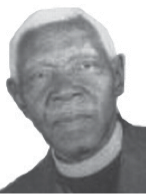
Zaccheus Richard Mahabane (Posthumous)
Awarded for his exceptional contribution to the struggle for democracy and freedom.
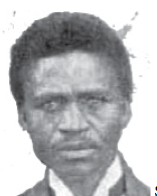
Sefako Mapogo Makgatho (Posthumous)
Awarded for his exceptional contribution to the struggle for democracy and freedom.
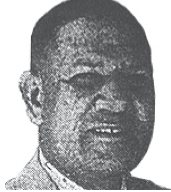
James Sebe Moroka (Posthumous)
Awarded for his contribution to the struggle for freedom, and for his outstanding contribution to the struggle for a free democratic, non-racial and non-sexist South Africa.
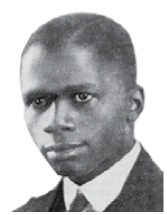
Alfred Bitini Xuma (Posthumous)
Awarded for his exceptional contribution to the struggle for a free, democratic, non-racial
and non-sexist South Africa.
Order of Mapungubwe Bronze
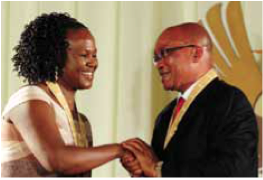
Dr Patience Mthunzi
Awarded for her invaluable contribution to scientific research in South Africa and internationally.
Order of Mapungubwe Silver

Professor Barry David Schoub
Awarded for his invaluable contribution to research in the containment and curing of infectious diseases; to science; and the people of South Africa and internationally.
Order of Mapungubwe Platinum
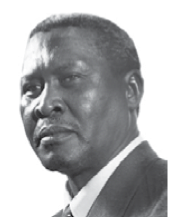
Albert Mvumbi Luthuli (Posthumous)
Awarded for his exceptional and outstanding leadership skills, in leading a peaceful struggle for human rights, and a non-racial, non-sexist, free, just and democratic South Africa.
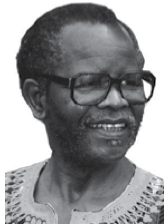
Oliver Reginald Kaizana “OR” Tambo (Posthumous)
Awarded for his exceptional and outstanding leadership skills, in leading a peaceful struggle for human rights and a non-racial, non-sexist, free, just and democratic South Africa, which belongs to all who live in it.
Order of the Companions of OR Tambo Silver

Professor Apollon B Davidson
Awarded for his exceptional contribution to the struggle for the eradication of apartheid and to the development of a post-apartheid, free and democratic South Africa.
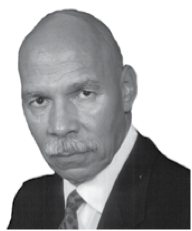
Randall Robinson
Awarded for his exceptional Contribution to the struggle against apartheid through the Free South Africa Movement.
Order of the Companions of OR Tambo Gold

Edward M Kennedy (Posthumous)
Awarded for his exceptional contribution to the struggle for the attainment of a non-racial, non-sexist, free and democratic South Africa.
National Orders 2012: A Vuk’uzenzele Special
National Orders 2012: A Vuk’uzenzele Special sadminHonour and excellence rewarded
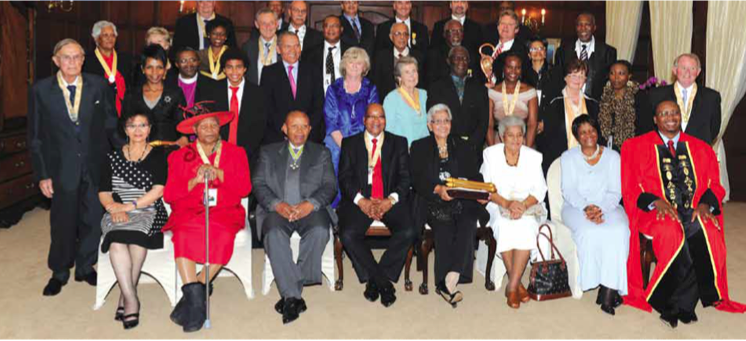
The National Orders Awards Ceremony, held at the Presidential Guest house in Pretoria, brought together South Africans and foreign nationals representative of diverse backgrounds and achievements for an evening of recognition and prestige.
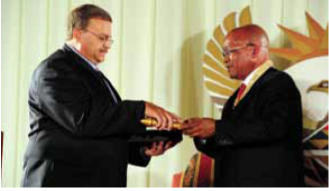
Photo caption: Proud father: David Janse van Rensburg receives the Order of Mendi for Bravery on behalf of his son, Michael.
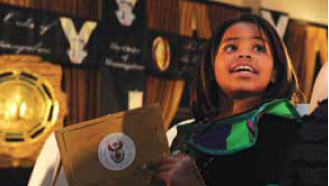
Photo caption: Younger generation: Anastasia Tambo accompanied her parents to receive the Order of Mapungubwe on behalf of her grandfather, Oliver Tambo.
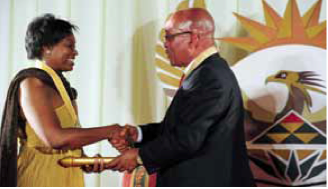
Photo caption: Artistic achiever: Gladys Agulhas receives the Order of Ikhamanga from President Jacob Zuma.
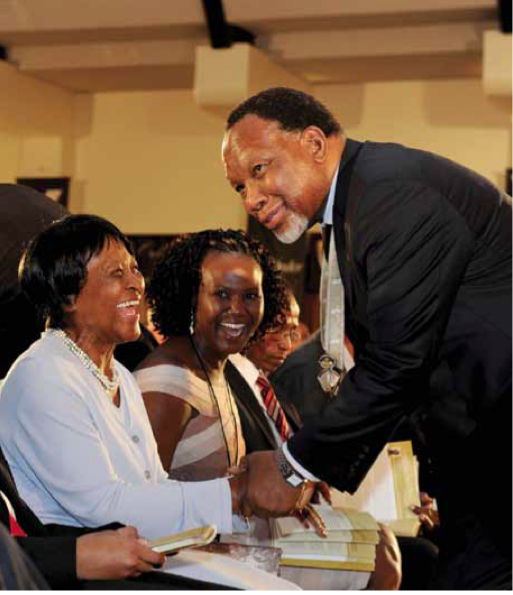
Photo caption: Remembering a legacy: Deputy President Kgalema Motlanthe welcomes Albertina Luthuli, daughter of struggle icon Albert Luthuli
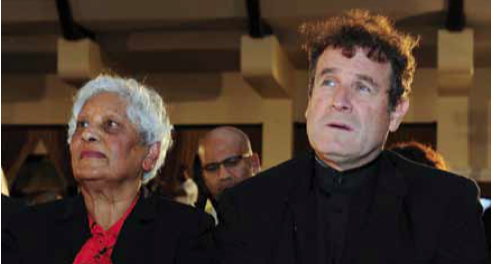
Photo caption: Solemn reflection: Cultural activists and recipients of the Order of Ikhamanga, Muthal Naidoo (left) and Johnny Clegg listen to President Zuma’s address.
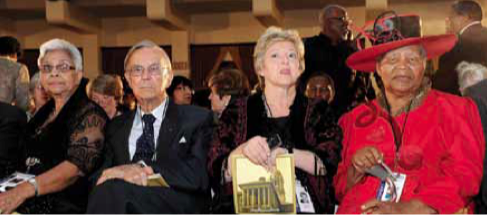
Photo caption: Rewarded for resilience: (From left) Joan Kadalie, Prof. Daniel Krige, Zane Wilson and Gladys Ramahuta prepare to receive the Order of the Baobab.
Retired, but far from tired
Retired, but far from tired sadminMelitha Madiba - Gauteng Department of Health
With more than 50 years in the healthcare industry under her belt, 73-year-old Alicia Mathope is as passionate about the profession as the day she started as a trainee nurse at the then Baragwanath Hospital in 1959. “Caring for people is all I know and I don’t think I could fit anywhere except in a profession that provides caring,” says the retired veteran from Rockville, Soweto.
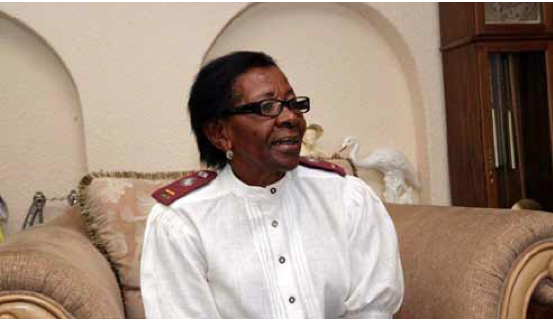
Photo caption: Retired nurse Alicia Mathope says she just could not stay at home, as she had always wanted to help the sick.
Mathope, one of the exceptional Gauteng residents mentioned in Premier Nomvula Mokonyane’s State of the Province Address, retired in 1997 from working as a senior professional nurse in the hospital’s maternity ward.
But her retirement did not hinder her from heeding a call by Health Minister Dr Aaron Motsoaledi and Premier Mokonyane for retired nurses to come and assist as hospitals were overloaded due to a shortage of nurses.
Thank you
“When I took my nursing pledge I promised to put the total health of patients as my first consideration. So when a call was made for retired nurses to come and assist, I did not hesitate, as being retired does not mean (being) tired,” Mathope quipped.
As someone who has been in the profession for many years, she said she also understood the heavy workload that nurses are faced with.
“As nurses, we are overloaded by the number of patients we oversee. We also work under physical demanding circumstances due to long work hours and handling patient demands,” she said.
She explained that although staff were faced with many challenges, including strenuous night shifts, a ‘thank you’ and a smile from patients was what made her look forward to going to work.
One of her satisfied former patients is Mitta Molefe. “Alicia is very patient and readily available to assist in times of need. She helped bring my two girls into this world. Today one of them is a social worker while the other is a medical practitioner,” Molefe said.
A calling
Mathope’s neighbour, Eva Mkhine, was also full of praise for this dedicated nurse and described her as a hard worker who always went beyond the call of duty to assist others.
“I know Alicia as a cheerful and helpful individual
who does not mind waking up in the
middle of the night when called. My daughter was inspired by her passion and followed in her footsteps. Today, through Mathope’s guidance and mentorship, she is the Senior Manager at JB Allen Baragwanath Main Operating Theatre,” said Mkhine.
Mathope, a widowed mother of two, said for her nursing is more than a career, it was a calling. Her message to current and prospective nurses is that although being a nurse is not easy, they needed to soldier on and always remember their nurses’ pledge whenever they were faced with challenges.
For more information, call the Gauteng Department of Health: 011 355 3000 Vuk’uzenzele would like to feature public servants who are making a difference in their communities like Alicia Mathope. If you know of anyone you would like to see featured send an email to: vukuzenzele@gcis.gov.za
Rural development -Legacy project bridges the rural divide
Rural development -Legacy project bridges the rural divide sadminLegacy project bridges the rural divide
Mphati Sehloho - Department of Rural Development and Land Reform
The Department of Rural Development and Land Reform has made significant progress in the construction of the 140-metre Nelson Mandela Legacy Bridge over the Mbashe River in the Eastern Cape.
This is in line with the commitment made by President Jacob Zuma during his State of the Nation Address to develop infrastructure to boost the economy and create jobs.
Villages that will receive direct spinoffs from this infrastructure project are Mvezo and Dondolo, which form part of the department’s Comprehensive Rural Development Programme sites. Many villagers will be employed in this R123-million infrastructure project.
New tar road
In addition to the bridge, the Mvezo project also involves the building of a new ten-kilometre tar road that will link Mvezo with the N2. This link is expected to make travelling comfortable and reduce the distance to East London, Mthatha and Idutywa by at least 50 kilometres.
Currently, whenever people of Mvezo have to travel to Idutywa they have to go via Qunu Village. This is an 86-kilometre journey and the bridge when completed will shorten the trip.
Mvezo is envisaged as a tourist attraction in the near future and the construction of the road will fast track economic development in the areas as transportation of goods to and from these areas will be with ease.
Mvezo is a small village near Idutywa town on the banks of the Mbashe River. It is a relatively poor village largely depending on subsistence farming. Donkeys are commonly used there in a number of activities including ferrying water from the Mbashe River.
Evironmental assessment
In executing this multi-million rand infrastructure project, the Department of Rural Development and Land Reform is working with various government departments including Public Works, Roads and Transport, as well as Water Affairs. During the environmental impact assessment, the following specialists conducted an environmental assessment in the area:
• Ecological specialists looked at important animals and plants. It was important to make sure that animals and plant species, particularly those that are in danger of extinction, are not removed or damaged.
• Aquatic specialists tested the quality of the water in Mbhashe River.
• Heritage experts assessed the possible impact on heritage value and attributes of cultural or historical significance in the area.
These assessments were done in accordance with the National Environmental Management Act which dictates that such studies be conducted before the construction of roads.
For more information, call 012 312 8112 or 083 977 4040
Rural development- Feeding scheme changes lives in KZN
Rural development- Feeding scheme changes lives in KZN sadminFeeding scheme changes lives in KZN
Kemantha Govender
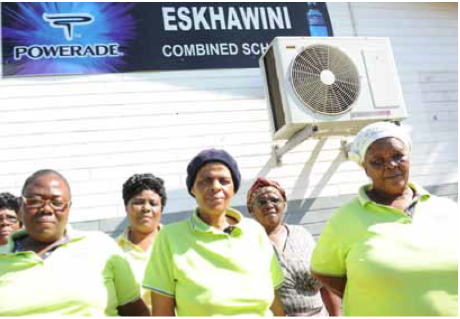
Photo caption: Members of the Sikhulile women’s cooperative are making positive changes to their community.
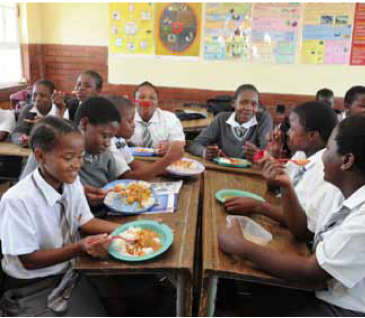
Photo caption: Many learners are benefitting from the feeding scheme.
More than 8 million learners benefit from government’s school feeding scheme, said President Jacob Zuma during his 2012 State of the Nation Address. Sindiliwe Zandile Myiko (48) is one woman who knows exactly what the President was talking about.
When children start looking healthy at school, Myiko’s heart starts to warm, since it’s both her life and those of children that have changed since the National School Nutrition Programme (NSNP) was started in 1994.
Previously known as the Primary School Nutrition Programme, the NSNP was extended in 2009 to serve secondary schools as well.
In KwaZulu-Natal, at least 5 203 schools benefit from the programme and in the 2011/2012 financial year, more than two million learners received meals on a weekly basis.
Happy orphans
Myiko belongs to a women’s cooperative in the Empangeni area, north of Durban. With the help of 9 other women, she provides vegetables and other food to 12 schools. This provides learners with meals for at least 16 to 21 days a month.
“Many of the children who receive the food are orphans or are very poor, so it makes me very happy to see them grow and look beautiful because of the food they receive,” Myiko said.
Before becoming involved in this project, Myiko was jobless and trying to earn a living by planting vegetables in her back yard. In 2006, she received training in catering and running a feeding scheme. With the other women she received a loan of R280 000 to start a cooperative.
So far, 109 local women cooperatives benefiting 617 members, have been established in the province to provide school meals.
Business skills
Job opportunities in the NSNP programme are also created through contracting different service providers in the form of small medium and macro enterprises (SMMEs).
According to the KwaZulu-Natal Department of Education, 1 757 SMMEs have been contracted in the current financial year. This has empowered and nurtured small businesses and has given formerly disadvantaged women business and operational skills.
During this period, the NSNP also recruited 9 587 voluntary food handlers who receive a monthly stipend of R640 per 300 learners.
Food handlers
The food handlers have been trained in skills such as preparation of NSNP menus, food safety and hygiene to ensure that the food provided to learners meet the required standards. In total 11 961 people, the majority being women, are benefiting through the NSNP.
The food handlers ensure that learners receive a quality, nutritious and well balanced diet of vegetables and starch daily. The meals range from sugar beans curry, phuthu pap, butternut, carrots, rice, samp and beans and more.
Meanwhile, the Education Department in collaboration with the Department of Agriculture, identified community projects in five municipal wards in Umgungundlovu District where vegetables can be bought. Similar projects will be started throughout the province later this year.
For more information, call the KZN Department of Education: 033 392 1085
Rural development- Gauteng puts more punch into fighting poverty
Rural development- Gauteng puts more punch into fighting poverty sadminGauteng puts more punch into fighting poverty
Melitah Madiba
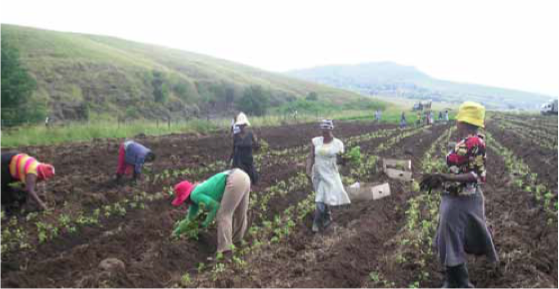
Photo caption: Emerging farmers who have demonstrated that they can run profitable businesses will benefit from the Gauteng government’s mentorship programme.
More than 300 farmers who have shown that they are committed to run their farms successfully, are set to benefit from a mentorship programme started by the Gauteng Provincial Government.
This follows intensified efforts by the provincial government to alleviate poverty and ensuring that Gauteng residents continue to have sustainable livelihoods.
Delivering her State of the Province address, Gauteng Premier Nomvula Mokonyane said the province was committed to strengthening food security and eliminating hunger through skills development and empowerment.
Food gardens
“It is our responsibility as the provincial government to provide a social safety net to the most vulnerable members of our society,” Mokonyane said.
She added that projects to provide a social safety net would be complemented by efforts to reduce dependency on the social grant system. “We will facilitate the movement of at least 1 200 recipients from the Child Support Grant system by creating access to jobs or business opportunities.”
The province also aims to help more than 40 000 households to grow their own food gardens by 2014. This will be in addition to more than 2 000 families that have already been assisted.
Mapping the road ahead, Mokonyane announced
that the province, in partnership with the national government and Mogale City, has commissioned the West Rand Agricultural Training College to facilitate skills development and specialised training and has set aside a budget of R36 million for this purpose.
“It is our responsibility as the provincial government to provide a social safety net to the most vulnerable members of our society. – Nomvula Mokonyane”
Export up
Reflecting on progress made so far, the Premier said that the Super Grand Feed Milling Plant in Bronkhorstspruit is exporting animal feed to Zimbabwe and had created both permanent and seasonal jobs. This is thanks to the provincial government’s assistance with farming and milling equipment.
Another flagship project, Thala Herbs in Mogale City, received assistance to build a new processing facility and is now exporting herbs to Mozambique and Swaziland.
The province has also facilitated the empowerment of more than 50 farm workers who benefited from a 51 per cent equity stake in the Bambanani Fruits Co-operative in Westonaria. “This co-operative exports processed herbs to Spain and it is also one of the major suppliers to the Johannesburg Fresh Produce Market,” Mokonyane said.
For more information call Gauteng Provincial Government on: 011 355 6000
Safety and security
Safety and security sadminThe role of the National Prosecuting Authority in the criminal justice system

OTHER STATE ROLE PLAYERS:
Department of Justice: court administration Department of Social Development: services for victims of crime
Legal Aid South Africa: legal defence support for accused persons
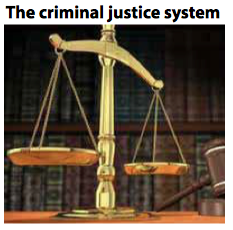
The criminal justice system is called a system for a reason. It represents various institutions that are role players at various phases of fighting crime in a value chain process, much like a relay. The criminal justice system is organised in such a way that each of these institutions can focus on a specific mandate and ensure that they have the right level of skill and capacity for their respective roles. The key role players in the criminal justice system include the police (SAPS), prosecutors or National Prosecuting Authority (NPA), the judiciary or presiding officers (magistrates and judges) and correctional services.
The police are the key frontline forces in the criminal justice system. They are responsible for preventing crime. They also investigate and make arrests.
The NPA is the only organisation with a mandate to prosecute crime on behalf of the state. All prosecutors in South Africa are appointed by the NPA, and are accorded powers in terms of legislation (the NPA Act and the Constitution) to make decisions whether to institute criminal proceedings, as well as any other functions this might lead to. In other words, only prosecutors can place any criminal matters that must be adjudicated in a court of law on the court roll. This happens after the police have submitted case dockets with the necessary evidence to the prosecutors.
Disputes
The NPA only prosecutes matters of a criminal nature – matters of a civil nature fall outside of the realm of the organisation. Criminal cases involve an action considered to be harmful to society; hence you can con- sider the prosecutor your legal representative when fall victim to crime. The long list of criminal offences includes murder, rape, theft, robbery, fraud and corruption. In such cases, the parties involved are the State vs the defendant or accused. In contrast, civil matters not addressed by the NPA are private disputes between persons or organisations, and the parties involved are referred to as plaintiff vs defendant.
Structural arrangements
The NPA is established in terms of the NPA Act to prosecute criminal cases without fear, favour or prejudice. The Minister of Justice and Constitutional Development Jeff Radebe is the Member of the National Executive who exercises final responsibility for the NPA. However, the functional head of the NPA is called a National Director of Public Prosecutions (NDPP) whose responsibilities include developing prosecutions policy guidelines and directives. The Directors of Public Prosecutions (DPPs) are the NPA provincial heads and are responsible for and have oversight over all matters that fall under their respective jurisdictions. Jurisdictions are divided along provincial lines mainly linked to the High Courts across the country.
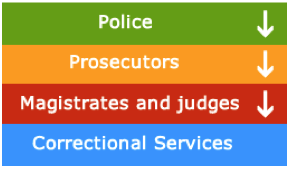
Safety and security Mob justice or plain injustice?
Safety and security Mob justice or plain injustice? sadminMob justice or plain injustice?
Mthunzi Mhaga
Hardly a week passes without us hearing about a suspect killed by members of the community in so-called mob justice. The concept of mob justice has created an impression that there is an alternative form of justice other than that of the courts.
This is what I call justice: a criminal offence is committed; members of the community where this has happened apprehend the suspect and take him to the police. Police in turn present the case to the prosecutors with relevant and admissible evidence that lead to the suspect being convicted and an appropriate sentence imposed.
But with mob justice a suspect is apprehended by members of the community after an offence is committed; he is then set alight or stoned to death instead of being taken to the police. This is not justice, but a community seeking vengeance.
Effects of mob justice
Referring to the criminal conduct by community members as justice, undermines the efforts by the criminal justice system.
Victims of crime will never be satisfied until a person arrested for allegedly committing a particular crime is convicted and sent to jail. They care less about constitutional implications that come with the arrest of the suspect who still has to be tried in a court of law.
Lack of understanding
Because of the legacy of apartheid, people still distrust the courts. The real reasons behind mob injustice which requires urgent attention is that people lack a basic understanding of how the court system works. The criminal justice system, therefore, must bring about programmes to educate the public on why certain decisions are taken in court.
People believe that if they take suspects to the police they will be released on bail which to them bail is equal to dismissal. They don’t realise that bail is meant to secure the attendance of the accused person in court and that the amount he or she pays is for that purpose only and is, therefore, not a fine or dismissal.
It is important to note that prosecutors’ efforts to oppose bail are boosted by a thoroughly investigated case that has all the relevant and admissible evidence. Without these, their hands are tied and on many occasions they have had to concede to granting of bail.
Bail conditions are there to ensure that the accused, who is out on bail, does not intimidate witnesses so that they can testify freely in a subsequent trial. When an accused threatens witnesses, violating his or her bail conditions, the witness must report this to the nearest police station or the investigating officer. This can only happen if the police have established a good relationship with their witnesses.
Community involvement
The prosecutor’s position and role makes it difficult to establish this kind of a relationship because one can only interact with the witness when the matter comes for trial during con- sultations in preparation for trial. Therefore, a solid relationship between police, community policing forums and the prosecutors is crucial.
Crime fighting in South Africa is everyone’s responsibility, especially those who have insight into legal processes. Together we can be more proactive and work together to overcome the scourge of mob justice.
As a result there is a need to build trust and understanding of the courts system.
For a list of jurisdictions and the contact details of each DPP office, please visit our website at www.npa.gov.za. You may also e-mail us at communication@npa.gov.za if you have enquiries about the work of the NPA or call on: 012 845 6000.
Safety and security Murder or culpable homicide?
Safety and security Murder or culpable homicide? sadmin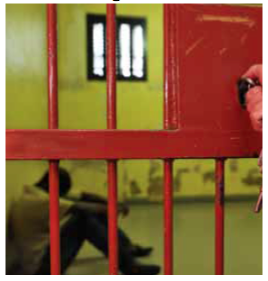
The National Prosecuting Authority’s (NPA) decisions to charge accused motorists with murder instead of culpable homicide (an act of killing not regarded as murder) in the event of a crash where someone was killed, has caused great confusion. Many people believe that car accidents resulting in death are regarded as culpable homicide as no one would deliberately crash his or her car to kill someone.
Within the NPA, there were different opinions, but this was preceded by an intensive and interrogative consultative process.
The role of the prosecutor
According to the Criminal Procedure Act, the prosecution may prefer any charge, as long as it has reliable and admissible evidence to substantiate its case. The prosecution may also use any prosecutorial strategy to present a formidable case. The NPA’s aggressive stance is based on three factors: legal principle, sentencing incentive and the need to ensure social responsibility among motorists.
When is it culpable homicide?
The charge of culpable homicide requires negligence. This means the prosecution must prove that the driver was careless when causing the accident, which resulted in death.
Someone convicted of this charge is usually fined or given a suspended sentence, which is non-custodial. Only in rare cases of extreme negligence the accused would be given a direct term of imprisonment.
This does not sit well with the members of the community because a non-custodial sentence where a life has been lost is considered to be lenient and inappropriate. However, the conduct of the accused lacks the required element of intention to cause such death. Public frustration on this score is understandable in view of the soaring rate of deaths on our roads.
When is it murder?
So, how do we explore the criminal law to address this challenge? A murder charge requires direct and indirect forms of intention to stand up in court. The approach is that in instances where we can prove that a motorist has had some form of intention to cause death, the charge of murder is appropriate.
An example is the case of the motorist who ran away from the police and collided with pedestrians, killing four. Under normal circumstances, he would have been charged with culpable homicide but because he exceeded the speed limit to avoid the police, he knew he might lose control of the car; that there may be pedestrians on the road; and that people may die because of a crash.
The NPA will be more aggressive in its approach to irresponsible drivers in the coming months. We hope the public will support our stance as we all have the interests of the road users at heart.
Soweto’s first black-owned jewellery manufacturing business
Soweto’s first black-owned jewellery manufacturing business sadminNqobile Nkosi is the proud owner of NQ Jewellery Design Services, the first black-owned jewellery manufacturing and retail business in Soweto. The business uses precious stones such as silver, gold, platinum and diamonds to manufacture jewellery.
At the beginning of 2012, Nqobile and UK designer Paul Spurgeon launched the Cornerstone jewellery brand at the United Kingdom (UK) Springfair Jewellery Show. “Our collection was sold in South Africa and the UK. While in the UK, I also went through a two-week internship where I had the opportunity to learn about all aspects of jewellery production,” he explains.
Where it all started
Nqobile’s journey in the jewellery manufacturing industry started in 2007 after he attended an 18-month training course in jewellery manufacturing and design.
“I started the business with the seed capital I made by selling cakes, biscuits and soft drinks on the streets of Soweto. However, because of limited funds and equipment, when the business was established we mainly repaired jewellery and manufactured jewellery on a small scale,” he says.
With the business loan Nqobile acquired from the National Youth Development Agency (NYDA), he managed to buy additional equipment and material and had money for working capital. “We also received immense assistance and donations from Paul Purgeon Designs and the British jewellery trade members,” Nqobile elaborates. Today, the business has trained and employs four people in their Soweto workshop.
Strength to strength
Over the years, the business has received numerous accolades, such as the Gauteng Business Leader of the Year Award in 2008, the Jet Community Regional and National Award in 2009 and the SAB Kick-Start Award in 2012.
According to Nqobile, the Cornerstone jewellery brand is doing extremely well in the UK market. How- ever, in order to ensure growth in the South African market, he is keen to work with prime South African jewellery retailers.
“Africa has an abundance of natural resources, which have for so long supplied the needs of the worldwide jewellery market. Our aim is to take advantage of these resources by training and employing South Africans from disadvantaged communities so that we can alleviate South Africa’s high unemployment levels,” he concludes.
Sport- First-ever Soweto outdoor gym park
Sport- First-ever Soweto outdoor gym park sadminMelitah Madiba
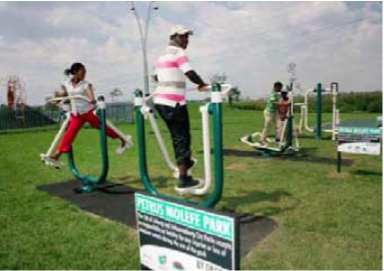
Photo caption: OUTDOOR EXERCISE ... Soweto residents make the most of Soweto’s first ever outdoor park
With the Gauteng Province having just wrapped up its Healthy Lifestyle Awareness Month campaign in February, residents welcomed the launch of an outdoor gym in Dlamini, Soweto with open arms.
This is evident as the Petrus Molefe Eco Park is always abuzz with enthusiastic fitness devotees.
Fully-clad in their colourful sportswear, residents actively sweat it out on the world-class equipment at the Green Outdoor Gym every day.
Launched recently by Johannesburg Executive Mayor, Parks Tau, the gym boasts rowing machines, exercise bikes, weights and cross trainers, which are permanently and securely mounted in the park. The park, which is a partnership between the city and the Green Outdoor Gym, is open to all and was designed for people of all ages and fitness levels.
Young Zama Sibanyoni, 11, of Dlamini 1 was overjoyed at the city’s initiative and intends to use it regularly. “This gym will help me and the other kids to keep fit while having fun. I am also happy with the security, as that makes me feel safe,” Sibanyoni said.
With a lack of exercise listed as one of the major contributors to a number of ailments, such as cardiovascular disease, the initiative wants to encourage communities to practice healthy lifestyles, while keeping fit.
William Mbokane, 24, of Rockville, echoed Sibanyoni’s sentiments. “With my meagre earnings, I could not afford to pay for monthly gym subscriptions. But with this is a free gym, I will come here every day after work,” Mbokane said.
The BioKinetics Association of South Africa will also allocate biokineticist visits to the park every month for free.
Sport- Mbalula to participate in 94.7 Cycle Challenge
Sport- Mbalula to participate in 94.7 Cycle Challenge sadmin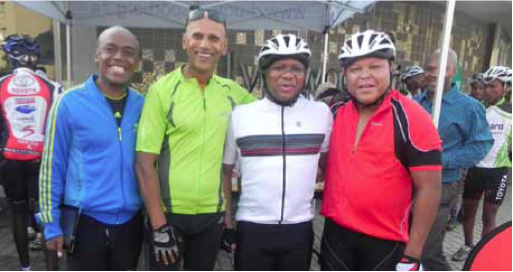
Photo caption: From left: Paena Galane, Paul Singh, Minister Fikile Mbalula, and ministerial advisor Max Fuzani during an Argus week-end training ride.
It’s official. Sports Minister Fikile Mbalula will participate in this year’s Momentum 94.7 Cycle Challenge to be held on Sunday, 18 November, after receiving his cycling gear and race number, 26318.
Speaking after receiving his gear, the minister urged all South Africans to consider participating in cycling as part of promoting a healthy lifestyle. “Cycling is great, so we are encouraging everyone to participate in cycling. Through cycling, people can fight diseases such as hypertension and diabetes,” he said.
Mbalula, who committed to finishing the cycling race in three hours, said he will not be competing to win. “I will not be competing to win the race, but to raise money for my own foundation so that we can use it to fund the educational needs of poor girls.”
Mbalula said he cycled about 20 kilometres every morning. “It is pity that for security purposes, I cannot reveal my route. The only time I don’t cycle is when I am outside the country.” Upon receiving his race number, Mbalula jokingly said: “I would have like to get 46668 as my racing number.”
Entries for the Cycle Challenge are open and all route information will be made available soon.
Sport- Ready to bring home the medals
Sport- Ready to bring home the medals sadminBuaNews
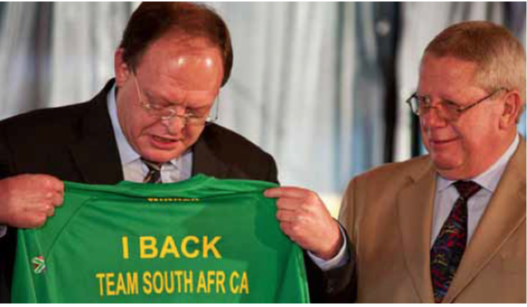
Photo caption: Deputy Minister Gert Oosthuizen receives a Team SA t-shirt from Les Williams, 23 years and I like the adrenalin

South Africa is ready for the 2012 London Olympics this month and the athletes are confident that they will bring home at least 12 medals.
At a celebration to mark 100 days to the 2012 Olympics, Vice-President of the South African Sports Confederation and Olympic Committee (SASCOC) Hajira Kajee introduced the Team SA t-shirt and asked all South Africans to wear it as a symbol of their support for the South African team.
The Team SA mascot, Chukuru the African rhino, was also on hand to show off his dancing and entertain those present. Members of the public recently voted for the rhino-like mascot as the most popular mascot for Team SA. The mascot is part of SASCOC’s drive to create a national identity around the team, also at future sports events like the Commonwealth Games, World Games, All Africa Games and Zone VI Games.
According to Minister of Sport and Recreation, Fikile Mbalula, a total of more than R34 million has been set aside for the preparation of South Africa’s Olympic athletes. Most of the money will be transferred to SASCOC organisation responsible for the technical and physical preparation and management of Team SA.
R1 million of this amount was awarded to the South African women’s Olympic hockey and football teams, while Swimming South Africa received R2 million.
Minister Mbalula also mentioned the important contribution of the Lotto, which has contributed R47 million to team preparation and delivery.
The trust that our people have put in our national teams to succeed is outstanding, said Mbalula. “We’ve achieved wonders in 2004 in Athens when we won six medals. We encourage our national teams to lead by a dream of a winning nation,” he said.
“Building up towards the 2012 Olympics in London, our teams, including Banyana Banyana and the women’s hockey team, have eventually made us proud. … We offer our unwavering support to all our national teams who qualified for the 2012 London Olympic Games. Your country is behind you!”
Sport- Safa determined to make Afcon a success
Sport- Safa determined to make Afcon a success sadminNthambeleni Gabara
Sports Minister Fikile Mbalula says government is ready to host the 2013 Africa Cup of Nations (Afcon). “South Africa has made a commitment to host the Afcon in 2013 and that’s how it will be,” he said after Cabinet announced the host cities of the 2013 Afcon and those of the 2014 African Nations Championships (CHAN).
According to South African Football Association (Safa) President Kirsten Nematandani, they will pull out all stops to ensure South Africa’s successful hosting of the 2013 African Cup of Nations.
“Nothing can stop the 2013 Afcon from succeeding. We have no more time to relax. We have to hit the ground running to ensure that our national team is ready for the tournament,” he said, while signing the handover agreement along with Safa Interim Chair Mwelo Nonkonyana.
The opening and closing ceremonies of the 2013 Afcon will be played at Johannesburg’s FNB Stadium, while matches will take place in Port Elizabeth (Nelson Mandela Bay), Rustenburg (Royal Bafokeng), eThekwini (Moses Mabhida Stadium) and Mbombela (Mbombela Stadium).
Government support
Nematandani told Nonkonyana that with the support of government, there would be no reason for the tournament hosting to fail. The tournament is scheduled to begin on 19 January and end on 10 February. In response, Nonkonyana pledged to do his best as interim chair until a permanent Afcon LOC board is established. “We dare not fail South Africa and the entire African continent. We cannot host the 2013 Afcon Tournament at a lower standard than that of the 2010 FIFA World Cup.
“I don’t have enough words to thank our government for the support, but one thing is certain: we are not going to fail them. We will work very hard to ensure that the tournament is
a success,” he said, thanking Nematandani for laying a solid foundation for him. Nonkonyana said during his tenure, the 2013 Afcon board will operate in line with what the Constitution of the country dictates.
hh head, said all 16 teams, which will participate in the tournament, are expected to be in the country on 13 January, while Bafana Bafana will play a team yet to be announced during the opening match on 19 January at FNB Stadium in Johannesburg.
Time is of the essence
According to Mbebe, there will be 24 group stages, six matches in each group, eight knock- out matches, 17 match days, 24 match sites, with two group stage matches per day in the same venue in the same host city.
“All group matches for a single team will be played in the same city, unlike in the FIFA World Cup where a team plays group matches in three different venues,” he said. Visits to the host cities for verification and engagement on any outstanding issues were carried out in May with the Inter-Ministerial Committee appointed by Cabinet.
He said the launch of the countdown and marketing campaign for the tournament has already begun, while the inspection visit by the Confederation of African Football will be con- ducted in July. The opening window for media accreditation for the South African media only will also begin in July, along with the unveiling of the tournament mascot. He said the theme song of the tournament will be launched in August. Media accreditation for international media will open in September. Mbebe said the final draw of the 2013 Afcon will take place in October.
For more information, call the Sport and Recreation SA: 012 304 5000
Tributes
Tributes sadminHamba kahle to servants of the people
As the country celebrated various national days in April and May, South Africans also mourned the passing away of two national leaders. Vuk’uzenzele pays tribute to the late Minister for the Public Service and Administration Roy Padayachie and former Minister of Cooperative Governance and Traditional Affairs, Sicelo Shiceka.
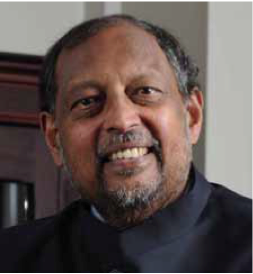
Photo caption: Mr Radhakrishna Lutchmana (Roy) Padayachie (1950 – 2012) former Minister for Public Service and Administration
A visionary, father, friend, leader and servant of the people - these are just some of the words President Jacob Zuma used to describe the late Minister for Public Service and Administration (DPSA), Roy Padayachie. Minister Padayachie was laid to rest on 4 May after suffering a heart attack in Addis Ababa, Ethiopia while attending a meeting of the African Peer Review Mechanism.
Paying tribute to Padayachie, the President said he was an asset and a man who was always willing and able to serve in any government position. “We had lost a gallant freedom fighter, a friend, a brother, a comrade and a man who truly loved this country and its people.”
He was a “patriot who hardly enjoyed comfort before the dawn of freedom and who, after the achievement of freedom in 1994, committed himself to the struggle to achieve a truly prosperous South Africa.”
Roy Padayachie joined the African National Congress (ANC) in 1972 and served as executive member of the Natal Indian Congress and executive committee member of the United Democratic Front in KwaZulu-Natal. He was also a member of the ANC’s KwaZulu-Natal negotiating team at the Congress for a Democratic South Africa.
He served as Deputy Minister for Public Service and Administration from 2009 to 2010 and as Minister of Communications from 2010 to 2011. He held a Bachelor of Science degree from the University of Durban- Westville and a Master of Science from the University of London.
Deputy Minister of Public Service and Administration Ayanda Dlodlo described Padayachie as an exemplary leader, a com- munity activist and struggle stalwart who served his people with utmost dedication and selflessness.
Home Affairs Minister Nkosazana Dlamini-Zuma said Padayachie was a compassionate, humble and disciplined man who loved his country and his family.
Government Communications Deputy Minister Obed Bapela, described Padayachie as a leader full of kindness with the desire to serve his community and getting things done differently and with integrity. “I cannot think of a more befitting characterisation of Roy’s greatness than that he led us in kindness,” Bapela said.
“May we all continue to be led in kindness and dedication and remain inspired by Roy Padayachie’s contribution to our historic struggle for democracy and his dedicated service in government, his courage of making personal and family sacrifices and a remark- able great resilience and commitment to a better life for all,” he added.
Director General for the Public Service and Administration, Mashwahle Diphofa, said the DPSA could take a leaf out of the late Minister’s book and pick up from where he left in the fulfilment of his vision of a better governed South Africa and an ever- improving public service.
“We will honour him the best way we can, which is to pick up the spear he has handed over to us in this relay race and to escalate the effort to build and sustain an effiient and effective public service,” Diphofa said.
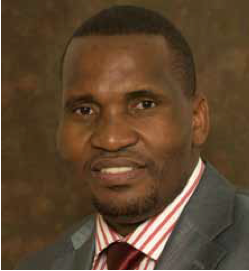
Photo caption: Mr Sicelo Shiceka (1966 – 2012) former Minister of Cooperative Governance and Traditional Affairs
A lot has been said and written about former Minister of Cooperative Governance and Traditional Affairs, Sicelo Shiceka, but the one sentiment that shines through from those who worked close to him is that he was an energetic and hard-working activist who made a major contribution to local government and to the liberation of our people.
Shiceka passed away on 30 April 2012 at St Mary’s Private Hospital in Mthatha in the Eastern Cape after a long illness. He served as Minister of Provincial and Local Government from 2008 to 2009, before being appointed as Minister of the newly reconfigured Department of Cooperative Governance and Traditional Affairs (CoGTA) in 2009, a position he held until 2011.
Prior to these positions, he served as a Member of Parliament in both the National Assembly and the National Council of Provinces. He was also a member of the African National Congress (ANC) National Executive Committee since 2007. Before being appointed to Cabinet, Shiceka was a member of various parliamentary committees, including Public Service, Land and Environmental Affairs, Security and Constitutional Affairs and Defence, as well as Ethics and Members Interests.
When President Jacob Zuma created the CoGTA in 2009, Shiceka worked tirelessly towards establishing and turning the new department into a fully functional department. He made a significant contribution to the development of provincial and local governance in South Africa with a clear vision of how local government should evolve to more effectively address the needs of citizens.
He played a key and visible role in the trans- formation of local government, especially with the development of the Local Government Turnaround Strategy (LGTAS) adopted by Cabinet in 2010, which is now being implemented.
Paying tribute to Shiceka, President Zuma said, “We will especially miss his energy, as he was a remarkable hard worker and his impact was greatly felt in the LGTAS, as well as his contribution to the struggle from the early 1980s.”
The ANC described Shiceka, who was affectionately called Comrade “SS”, as a person who made his lasting contribution by not only fi for liberation but also through his contribution to government.
Shiceka came from a politically astute family and was the grandson of one of the pioneers of the struggle against apartheid. It is therefore not surprising that he dedicated his life to the struggle for the liberation of his people. Shiceka cut his political teeth in the mass democratic movement, which was led by the United Democratic Front and also through activism in the labour movement led by the Congress of South African Trade Unions.
“On behalf of government and the people of South Africa, we wish to convey our heart- felt condolences to the family, relatives and friends,”said President Zuma.
“May his legacy live on and may those left be- hind pick up where he left and realise the vision of a better South Africa for all who live in it.”
Youth Month alive with activities
Youth Month alive with activities sadminYouth Month alive with activities
Today, youth activism is directed to- wards tackling poverty, unemployment, personal development, economic freedom and HIV and AIDS, among others.
Youth Month will be commemorated and celebrated through various activities by the National Youth Development Agency (NYDA) in partnership with government and the private sector.
Activities include the Youth Month Train Campaign from 1 to 30 June in partnership with the Rail Agency of South Africa (PRASA). The train will leave from Gauteng on 1 June to travel through all nine provinces, stopping for a day or two at different stations and ending its journey at the Johannesburg station on 30 June. This year’s national Youth Day celebrations will be hosted in the Eastern Cape with President Jacob Zuma addressing youth in the Nelson Mandela Bay metro.
A highlight of the day will be the Exhibitions Galore Fair where youth-owned businesses will exhibit and showcase their products and services. The celebrations will end with a special youth concert in the afternoon.
During the course of Youth Month, 36 houses will be built for youth-headed households in rural areas in all nine provinces with funding from sponsorships and government subsidies. The Youth Month Programme will conclude with the hosting of the first NYDA South African Exceptional Youth Awards ceremony in Gauteng.